Meet Details
The Wyoming Farm Bureau Federation (WyFB) will host the 2022 Col legiate Discussion Meet on Nov. 10 at 4 p.m. at Casper College during the WyFB 103rd Annual Meet ing. The application dead line is Oct. 24. The Colle giate Discussion Meet man ual, which includes the top ics, room setup and more, can be found online at wyfb. org/yfr/competitive-events/ E-mail kclark@wyfb.org with contest questions.
Wyoming RAC
The Bureau of Land Management (BLM) is seek ing public nominations for positions on the Wyoming Resource Advisory Council (RAC). This citizen-based council assists in the devel opment of recommenda tions addressing public land management issues within Wyoming. Individuals may nominate themselves or others to serve on the RAC. BLM will consider nomina tions until Nov. 5. For more information, e-mail Azure Hall at ahall@blm.gov or call 307-274-5591.
Science Event
The Wyoming State Geo logical Survey and Univer sity of Wyoming (UW) Geo logical Museum are hosting a free public event Oct. 15 in celebration of Earth Science Week. “Wyoming Rocks: Critical Resources for a Sus tainable Future,” will be from 10 a.m.-1 p.m. at the Geo logical Museum in Laramie. For more information, e-mail geolmus@uwyo.edu or chris tina.george@wyo.gov.
Tax Cuts
Montana Gov. Greg Gianforte held a press con ference Oct. 5 to announce his plans to cut taxes for Montana’s small businesses, farmers and ranchers. The governor unveiled his plan to reform the business equipment tax in the 2023 Legislative Session, build ing on the tax reforms and cuts enacted in 2021. The governor’s press confer ence was the first in a series of events to unveil priorities ahead of the upcoming leg islative session.
Producers and water users discuss water management
The Colorado River Compacts, Continu ing Drought and Potential Impacts to Wyoming Pine dale public meeting took place Sept. 27 at the Sublette County Public Library.
Points of discussion
pertained to producers and water users who use water from the Green River or a tributary of the Green River including, but not limited to Piney Creeks, Cottonwood Creek, Horse Creek, Beave Creek, New Fork and its trib
utaries, East Fork, Boulder Creek, LaBarge Creek and Fontenelle Creek in Sublette and Lincoln counties.
Speakers included Wyo ming Superintendent Water Division IV Kevin Payne and Senior Assistant Attor
ney General Chris Brown. Colorado Work Group
“The reason the Col orado Work Group was formed was in part of a cou ple of things,” said Wyo ming House Rep. Albert
AG RECOGNITION
Disease outbreak
Fall migration increases HPAI occurrence
Following a summer absent of both domestic and wild birds testing positive for highly pathogenic avian influenza (HPAI), the dis ease has recently been con firmed in Wyoming along with major losses to domes tic poultry flocks in Col orado. Several detections since mid-September have prompted producers to increase biosecurity prac tices and monitor flocks closely.
“Cases of HPAI are on the rise again across the country as migratory birds start their seasonal move ment south,” said Colorado State Veterinarian Maggie Baldwin. “The most impor tant thing bird owners can do right now is limit interac tion between their flocks and wild birds.”
UW honors alumni and supporters during Ag Appreciation weekend
The University of Wyoming (UW) College of Agri culture, Life Sciences and Natural Resources honored notable alumni and supporters at its annual Ag Apprecia tion Banquet Sept. 29.
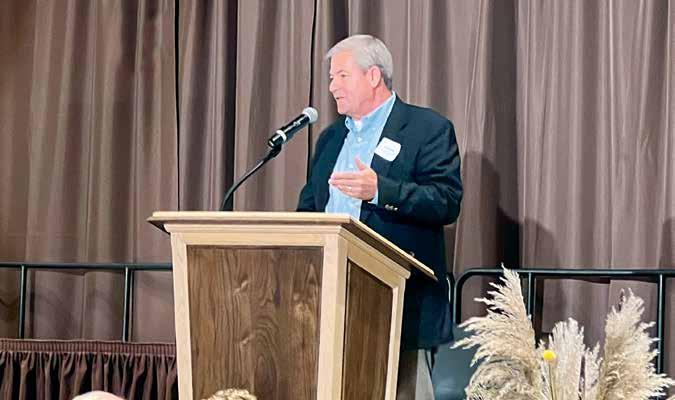
Recipients included Legacy Award winner Ann Ram say, in honor of her mother Elizabeth McCabe; Corpo rate Partner of the Year Farm Credit Services of Amer ica (FCSA); and Outstanding Alumni Craig Alford and Larry Prager.
WGFD honors landowners
The Wyoming Game and Fish Department (WGFD) rec ognized the 2022 Landowners of the Year Sept. 13 in Sad dlestring. The Landowner of the Year award is presented to Wyoming landowners who have demonstrated outstanding practices in wildlife management, habitat improvement and conservation techniques on their properties.
These landowners also cooperate with the WGFD to pro vide access to hunters and anglers on their properties. Award recipients are nominated by WGFD employees and selected by regional leadership teams.
This year’s awardees include: Sue and Ron Martin; the Reinecke family; J.R. Good; Bill and Duveene Hamilton (deceased); DeWitt and Kay Morris; Anne Marie Albins and Brian Burg; and Deb McCormick.
Sheridan Region
The Sheridan Region nominated Sue and Ron Martin. The Martins own the Fryberger Ranch in central Sheridan County. The ranch consists of irrigated hay fields, riparian areas and rolling grass-covered hills, providing habitat for a variety of big game, bird and other nongame species.
The property has been enrolled in the Access Yes Walk-In Area program since 2005 and provides access for sportsper sons to hunt deer and antelope along with gamebirds. Their participation in the program provides public hunting opportu nities in an area where it is increasingly difficult to find access.
The Martins have been active in the control and elimina tion of invasive plants on their property, particularly ventenata since its discovery in the county several years ago. The Mar tins have also supported the ongoing North Big Horns Mule
Legacy Award
The Legacy Award recognizes someone whose finan cial support helps ensure all of UW’s programs grow and thrive. Ann Ramsay, in honor of Elizabeth McCabe, was the recipient of the 2022 Legacy Award.
McCabe, Ramsay’s mother, was a much-loved mem ber of the Jackson Hole community. As a passionate sup porter of 4-H, she photographed every Teton County
Please see UW on page 5
According to the Cen ter for Disease Control and Prevention, the risk of HPAI to the general public is low, though people should use caution when handling sick or dead birds.
Colorado layer losses
HPAI outbreaks have devastated Colorado’s laying hen population, as producers work to rebuild flocks from the loss of millions of birds this spring.
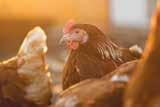
WOMEN IN AG
Ranchwoman provides Western hospitality
Wyoming native Alexa Kennedy holds many titles: rancher, mother, business woman and self-starter being a few. She values her role in the ag industry and rec ognizes the work other women in ag do for the industry.
“When I look at what I do and how I live, I’m just like my neighbor next door,” she says. “This is just who we are. It means a lot to us to be able to share with people what we do and why we love it.”
Background

Alexa grew up ranching with her grand father, dad and uncles who all worked for
True Ranches in Rock River and Newcas tle. She also worked on Scott and April Sims’ ranch in McFadden during the sum mers when she was a teenager.
“It was probably through living with their family that I got exposed to advo cacy, telling your story and being stewards of the land,” she says. “They’re really pro active with all of it.”
Alexa met her husband Kelly and moved to his family’s ranch near the Laramie Peak area. After Kelly’s dad passed away nine years ago, Alexa and Kelly moved to
Please see KENNEDY on page 4
In the June 21, 2014 issue of the Roundup, I wrote a column titled “Mud dying The Waters.” It was about the Envi ronmental Protection Agency (EPA) and the U.S. Army Corp of Engineers over reach in defining the Waters of the U.S. rule based on their interpretation of the Clean Water Act (CWA).
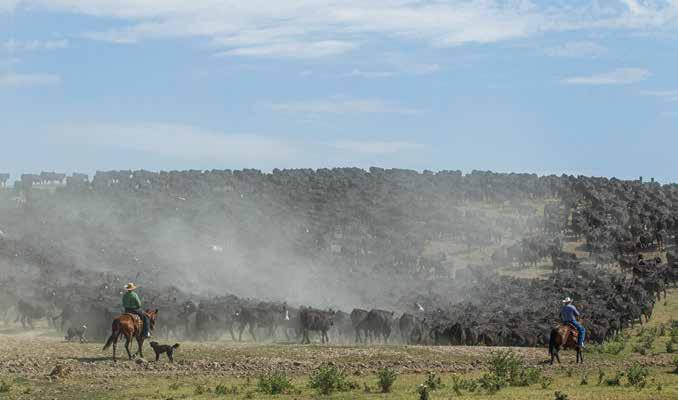

This proposed rule really was a concern for the agriculture and con struction industries and local and state governments. Many responded to the EPA saying the proposed rule would redefine waters of the U.S. under the CWA based on a narrow opinion by Justice Anthony Kennedy in a 2006 Supreme Court deci sion saying an isolated water, like a stock pond or a ditch, doesn’t have to have a surface water connection to a down stream navigable water to be considered “waters of the U.S.”
Justice Antonin Scalia wrote the plurality opinion on the case, and his opinion differed from Kennedy’s by saying the waters of the U.S. include only those relatively perma nent, standing or continuously flowing bodies of water like streams, rivers and lakes. Justice Scalia specifically noted waters of the U.S. does not include channels that only hold water periodically and are only wetlands with a continuous surface connection to bodies of water representing waters of the U.S.
The EPA and Corps of Engineers chose to base the final rule on the Kennedy opinion, and as one congressman later said, “Enough is enough with regard to federal overreach on U.S. farms and ranches. When the bureaucrats at the EPA decide to call a divot in the ground filled with rain a naviga ble waterway under the CWA, we know our federal govern ment has run amuck.”
About 16 years have passed since the Supreme Court established the “significant nexus” test to determine whether certain land uses are subject to CWA regulations. Last year, the Ninth U.S. Circuit Court of Appeals affirmed the EPA’s conclusion regarding a wetland on an Idaho property does meet the significant nexus test. The case has been appealed to the Supreme Court, and the court heard oral arguments on Oct. 3.
A number of people and lawyers agree the Idaho appeal to the Supreme Court is an excellent vehicle for reexamining the legal precedent, since the alleged wetland on the property is surrounded by barriers to the “navigable waters” of nearby Priest Lake.

The couple who own the land have been fighting the gov ernment since 2007. They wanted to build a house on their land which had a wetland on it. The EPA told them they needed a permit because of the wetland. The EPA ordered the construction stopped and threatened huge fines if they didn’t obtain the permit, which usually takes around two years and may cost up to $250,000.
I realize the conservative majority on the Supreme Court should help with the case. The Supreme Court ruled back in June the EPA overstepped its authority under the Clean Air Act to slash planet-warming emissions from power plants, which should also help.
Around 50 years ago, when Congress passed the CWA, legal minds mentioned the intent was never to overreach at this level. Seven administrations have let the EPA run away with bad decisions. We hope and pray this is the end of the overreach.
In America, elections are important to our future. Whether for a school board, water conservation district or a member of Congress, we should do our best to cast our ballot every chance we get. Voting for candi dates who support similar values and who will work to implement the policies you prefer is important for many reasons. It helps our gov ernment enact the will of the people, ensures a strong democracy and gives every one equal opportunity to have a voice in a govern ment which should be of, by and for the people.
In just over a month, tens of millions of Ameri cans will cast their ballots to elect one-third of the U.S. Senate, all 435 members of the House and fill thousands
By Vincent "Zippy" Duvalladvancing responsible poli cies, but voting is the most important way we can all make our voices heard.
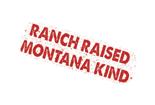
of state and local offices. As a grassroots organization, Farm Bureau members are always working to advance policies helping farmers and ranchers stock America’s pantries and ensure a vibrant future for our communities.
Of course, calling, e-mail ing and meeting with our representatives is critical to
Farmers and ranchers know all too well how gov ernment policy can impact their farms. Issues like labor, trade, taxes and how we raise crops and livestock are just four of the hundreds of areas where the govern ment can reach on to our farms. We need elected offi cials who will help us solve the challenges we face, not create more. So, as you evaluate which candidates to support, be sure to con sider how their viewpoints might affect agriculture.
The members of Con gress elected this November will be responsible for writ ing and passing the farm bill next year. This is a critical
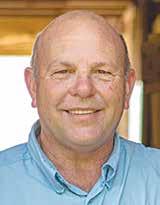

piece of legislation for agri culture, our rural communi ties and for those who need a helping hand to put food on their family’s table.
The November elections will likely usher in one of the largest classes of new mem bers of Congress in decades. We must ensure our newly minted federal legislators understand agriculture and how farm bill policies help protect our farms for the next generation.
And while votes for federal offices are impor tant, taking the time to learn about candidates for state and local offices is just as important – and maybe even more so. Our local govern ments set county ordinances which could limit how many animals landowners can

Secretary of state appointed
Gov. Mark Gordon has appointed Karl Allred as secretary of state. Allred replaces Ed Buchanan, who resigned Sept. 15 after being appointed a District Court judge for the Eighth Judicial District. State law obliges the governor to choose within five days from three names submitted to him by the Republican Central Committee. The other two candidates were Marti Halverson and Bryan Miller.
“I have selected Mr. Allred from the candidates for warded to me by Wyoming Republican Party Chairman Frank Eathorne,” Gordon said. “We will coordinate with Mr. Allred to arrange for his swearing in as soon as possible.”
The governor noted two of the five elected constitutional officers are now unelected appointees as a result of the exist ing statutory process for replacing statewide elected officials.
Allred is a resident of Uinta County. He will serve until a new secretary of state is sworn in on Jan. 2, 2023.

Convention registration opens

The 2023 Cattle Industry Convention & National Cat tlemen’s Beef Association (NCBA) Trade Show registra tion and housing are now open for the annual event taking place Feb. 1-3, 2023 in New Orleans. Every year, Cattle Con draws thousands of cattlemen and women from across the country for education, entertainment and engagement. Convention attendees will gain insights on current market trends during the CattleFax Outlook Seminar, hear a “State of the Industry” update from NCBA leader ship and recognize Regional Environmental Stewardship Award Program recipients and Beef Quality Assurance Award winners. Participants will also enjoy networking opportunities and entertainment, including a special Feb. 2 evening event and a Cowboy Concert on Feb. 3 featur ing Neal McCoy and the country music group Midland.
The convention is preceded by the 30th annual Cat tlemen’s College, which is famous for highlighting cut ting-edge topics from industry leaders. This event begins Jan. 31, with afternoon sessions and live animal dem onstrations, followed by an evening reception. It contin ues Feb. 1 with 18 educational session options, a keynote presentation and lunch.
In addition to experiencing a wide variety of educa tion and entertainment opportunities, producers will be hard at work guiding both Beef Checkoff and NCBA pol icy programs. Annual meetings of the NCBA, the Cat tlemen’s Beef Board, American National CattleWomen, CattleFax and National Cattlemen’s Foundation will also take place.
A variety of registration options are available includ ing the popular Education Package, which includes full convention registration and admission to Cattle men’s College. For more information and to register and reserve housing, visit convention.ncba.org/
USDA announces grants

The U.S. Department of Agriculture (USDA) Secre tary Tom Vilsack announced on Sept. 30 the Biden-Har ris administration is inviting U.S. farmers and agricultural producers to apply for grants under the Fertilizer Produc tion Expansion Program. The administration recently announced it’s making $500 million in grants available through the program to increase American-made fertil izer production, spur competition and combat price hikes on U.S. farmers caused by the war in Ukraine.
“The Fertilizer Production Expansion Program is one of many ways the Biden-Harris administration invests in the agricultural supply chain right here at home,” Vilsack said. “This funding will bring production and jobs back to the U.S., promote competition and support American goods and services. Under the leadership of President Biden and Vice President Harris, USDA continues to cre ate a resilient, secure and sustainable economy to support opportunities for local businesses and people across this nation. This program is a critical part of that effort.”
To learn more, visit rd.usda.gov/newsroom/newsrelease/biden-harris-administration-invites-applicationsgrants-under-fertilizer-production-expansion
Montana grain stocks reported
Oat stocks in Montana on Sept. 1 were 826,000 bushels, up five percent from Sept. 1, 2021, according to the Sept. 1 Agricultural Survey and September Grain Stocks Report conducted by the Mountain Regional Field Office of the National Agricultural Statistics Service, U.S. Department of Agriculture.
Off-farm oat stocks were 76,000 bushels, up 111 percent from a year ago, and on-farm oat stocks were 750,000 bush els, unchanged from a year ago. Montana barley stocks in all positions on Sept. 1 were 40.55 million bushels, up 29 per cent from a year ago. Barley stored on farms totaled 33.5 mil lion bushels, up 52 percent from last year. Off-farm barley stocks were down 26 percent from a year ago to 7.05 mil lion bushels.
All wheat stocks in Montana on Sept. 1 were 127.35 mil lion bushels, up 21 percent from Sept. 1, 2021. All wheat stocks stored on farms amounted to 94 million bushels, up 32 percent from a year ago. All wheat stored off farms amounted to 33.35 million bushels, down three percent from a year ago.
Durum wheat stocks on Sept. 1 were 15.03 million bush els, up 49 percent from a year ago. Durum wheat stocks stored on farms amounted to 12.5 million bushels, up 60 percent from a year ago and Durum wheat stored off farms amounted to 2.53 million bushels, up nine percent from a year ago. Other Montana grain stocks were not published separately to avoid disclosing data for individual operations.
NCBA calls on EPA
The National Cattlemen’s Beef Association (NCBA) called on the Environmental Protection Agency (EPA) on Oct. 3 to pause their Waters of the U.S. (WOTUS) rule making following the Supreme Court oral arguments in the case Sackett v. EPA, a case which will determine the EPA’s authority to regulate bodies of water under the Clean Water Act (CWA).
“Today’s oral arguments highlighted the need for the Supreme Court to put this issue to bed once and for all. Since the passage of the CWA, cattle producers have expe rienced the regulatory whiplash of shifting WOTUS def initions – on average, a change every 3.8 years,” said NCBA Natural Resources and Public Lands Council Exec utive Director Kaitlynn Glover. “NCBA is hopeful the court will support NCBA’s argument for a clear and lim ited WOTUS definition, but in the meantime, we call on the EPA to suspend their rulemaking until the outcome of the case is clear.”
In April 2022, NCBA filed an amicus brief before the Supreme Court calling for a new test for determining whether a water feature fell under the jurisdiction of the CWA. NCBA’s argument would allow the government to protect substantial bodies of water while preventing over reach on small isolated agricultural water features.
NCBA also filed comments on the Biden administra tion’s proposed WOTUS rule. NCBA is calling for this rulemaking to halt until the Supreme Court issues a ruling in the Sackett v. EPA case
Net farm income predicted
Net farm income in Nebraska is projected to remain nearly unchanged from 2021 to 2022, at around $8 bil lion, according to a new report produced in collabora tion between the University of Nebraska-Lincoln’s Cen ter for Agricultural Profitability and the University of Missouri’s Rural and Farm Finance Policy Analysis Center.
The fall 2022 Nebraska Farm Income Outlook report projects a growth of $4.7 billion in crop and live stock receipts, which were countered by a $3.2 billion increase in production expenses and a $900 million decline in government payments. The expected flat net farm income in Nebraska differs from the national out look, which projects a six percent increase in total U.S. net farm income, largely due to the difference between state and national livestock receipts.
While Nebraska livestock receipts are projected higher for 2022, they are concentrated in meat animals, particularly beef cattle, while greater gains nationwide include larger projected increases in dairy and poultry. The report includes the impact of weather, geopolitical conflict and other factors on net farm income.
The Nebraska Farm Income Outlook is available at cap.unl.edu/farm-income
&
FEEDERS
Jim
Smokey
WEANED CALVES
Stuart
Todd Berry
Mx Strs,
Terry & Gina McIntosh
PRE-COND. CALVES
Cattle
Lovercheck
Branding

Mx Strs & Hfrs,
Strs
Bovi-Shield
Hfrs,
OCTOBER
Weaned
Bunk Broke,
a Light Grower
Implants,
CLASSES
17 ~ CALF SPECIAL
Vac. Program
Precond
Wheatland and bought land where they now ranch in partnership with their son.
Alexa and Kelly have impacted the lives of many with their welcoming, gen erous mindsets. They were foster parents for 12 years.
“It was really reward ing to take these kids in, take them out on the farm and give them responsibil ities,” she says. “It made a huge difference for those kids being on the land and working with the animals.”
Alexa was also a special education paraprofessional for the Albany County School District for eight years.
“I loved being a para, and I was good at it,” she says. “I think it all went back to growing up on a ranch where I learned to study animal behavior, so I always had a lot of success with those kids because of my awareness.”
Alexa has always val ued being involved with ag organizations.
ding Bell Hall and Events, on the Kennedy Ranch located at the foot of Lara mie Peak. Alexa purchased the farm next door to her and Kelly’s place and con verted the house into the bed and breakfast and built the wedding hall.
Wyoming Bell Enter prises offers a one-of-akind Western venue experi ence for special occasions. She is receiving positive feedback for her work and is finding there is quite a demand for it.
Alexa’s ability to connect with others and build rela tionships shines through her work in the hospitality industry.
“My husband and I have always loved entertaining and hospitality,” she says. “I always have a table set for extras.”
Advice for young women in ag
Alexa enjoys mentor ing young individuals, and she offers advice for young women in ag.
SALE RESULTS -ALL CLASSES
MONDAY, OCTOBER 3RD - 1984 HEAD
Lynn Powell 2 Black Str Cf Precond 300 265.00C
Charles Maike 3 Black Str Cf 335 254.00C
Joe Bright 25 Black Steer Calf 392 251.50C
Mark Leiseth 6 Black Str Cf Precond 455 227.00C
Joe Bright 54 Black Steer Calf 503 220.50C
Nathan Lane 36 Black Str Cf Precond 514 220.00C
Wes Stewart 6 Black Steer Calf 512 218.00C
88 Ranch Land 85 Black Steer Calf 518 217.50C
Ken Pickinpaugh 48 Black Str Cf Precond 575 209.00C
James Rhodes 6 Black Str Cf Precond 590 205.00C
Nathan Lane 4 Black Str Cf Precond 613 200.00C
Mary Kay Brown 33 Black Steer Calf 554 197.50C
Bob Cress 30 Black Steer Calf 601 194.50C
Trevor Jenne 24 Black Str Cf Precond 647 188.00C
Bob Cress 5 Black Heifer Calf 314 237.00C
Toby Campbell 21 Black Heifer Calf 361 226.00C
Mary Kay Brown 11 Black Heifer Calf 427 204.00C
88 Ranch Land 37 Black Heifer Calf 564 200.50C
Michael Sussex 11 Black Hfr Cf Precond503 193.50C
Ken Pickinpaugh 13 Black Hfr Cf Precond494 192.00C
88 Ranch Land 17 Black Heifer Calf 512 189.00C
Ken Pickinpaugh 44 Black Hfr Cf Precond551 186.50C
Bob Cress 26 Black Heifer Calf 536 182.00C
Trevor Jenne 30 Black Hfr Cf Precond626 179.00C
Joe Giemza 11 Black Hfr Cf Precond605 177.50C
Mark Leiseth 6 Black Hfr Cf Precond 576 175.50C
UPCOMING SALE SCHEDULE
Monday, October 10th - Calf Special
Wednesday, October 12th - Yrlg & Calf Special
Friday, October 14th - All Classes
Monday, October 17th - Calf Special
Wednesday, October 19th - Yrlg & Calf Special
Friday, October 21st - All Classes
Monday, October 24th - Calf Special
Wednesday, October 26th - Yrlg & Calf Special
Friday, October 28th - All Classes
SALE RESULTS -YRLGS & CALVES
WEDNESDAY, OCTOBER 5 - 4204 HD
Tracy Terrell 46 Black Steer 665 206.50C
Tracy Terrell 115 Black Steer 700 196.00C
Fairplay Ranch 59 Black Steer 860 185.00C
Erik Eddington 38 Black Steer 751 184.50C
6 W Cattle Co 51 Black Steer 755 183.50C
John Kemp 70 Black Steer 832 180.50C
John Sampers 3 Black Steer 815 180.00C
Roulette Ranch 43 Black Steer 781 178.50C
Erik Eddington 27 Black Steer 904 175.50C
Jason Crowder 29 Black Steer 1002 172.00C
John Kemp 72 Charolais Steer 802 180.50C
John Kemp 19 Charolais Steer 804 176.00C
O D Cattle Co Inc 64 RWF SteerAll Natural941 171.50C
Carbon Creek Cattle 8 Black Heifer All Natural 820 178.00C
Mark Shipley 70 Black Heifer 731 177.00C
Shawn Hall 22 Black Heifer 875 171.50C
Mark Shipley 240 Black Heifer 811 171.00C
Carbon Creek Cattle 4 Black HeiferAll Natural958 169.00C
FKW Partnership 33 Black Heifer 935 168.00C
Box E Cattle LLC 53 Black Heifer 890 167.50C
Aspen Gulch Ranch 27 Black Heifer 899 166.50C M & M Ranch 45 Black Heifer 1013 157.25C
Laramie Cattle Co 25 Red Heifer 826 174.50C
Gus Cross 14 Red Heifer 919 165.00C
Kemph/RJ Land 10 Black
Bates Creek Cattle 64 Black
Bates Creek Cattle 153 Black
Kemph/RJ Land
Melvin Rothleutner
Justin Briggs
Bates Creek
Justin
Bates
Darel/Melanie
396 231.00C
482 220.00C
213.50C
205.00C
She served as the Albany County Farm Bureau pres ident for four years, and is now the membership chair for Platte County Farm Bureau. She has served on multiple com mittees for Albany County CattleWomen and Platte County CattleWomen and was very involved with the Wyoming Farm Bureau Young Farmers and Ranchers program.
Wyoming Bell Enterprises


Alexa currently ranches part time while also cater ing and operating a bed and breakfast and wedding/ event venue, which is all part of her business, Wyo ming Bell Enterprises.
Her catering company, KK Catering, offers homecooked ranch-style foods.
KK Catering is currently in the crossover process of morphing into Dinner Bell Catering. Alexa has owned the catering company for eight years and says she never attended culinary school, but learned from those around her.
“I grew up in a great family of ranch women who knew how to cook,” she says.
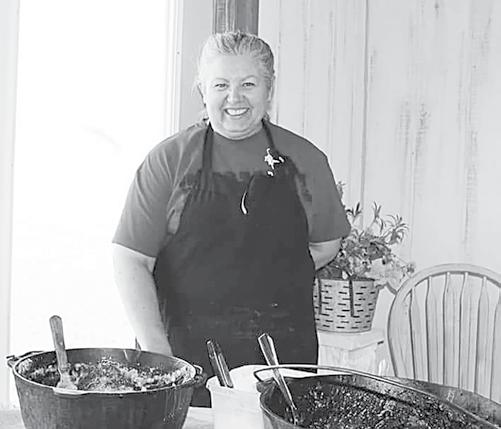
She operates the bed and breakfast named The Bell Inn, and the wedding/event venue, called the Wed
“Make contacts, friend ships and build relation ships,” she says. “If you want to learn something, go find the person in your area doing it the best they can, and then ask them to mentor you and call and ask questions.”


She advises producers to constantly strive to grow and better themselves.
“Don’t get stuck in a rut and think this is the only way to do it,” she says. “There are always so many opportunities out there and people want to be involved – they want to help you.”
She says it’s important to make connections and find mentors.
“Take advantage of the programs out there,” Alexa says. “Ag organizations have a lot they would invest if you just reach out.”
She encourages women in ag to become involved with their community and share their way of life with others.
“I think being involved in the community is a huge opportunity to share your life, what you do and why you love it,” she says.
Kaitlyn Root is an editor for the Wyoming Livestock Roundup. Send comments on this article to roundup@ wylr.net.
Deer Study since 2020.
Casper Region
The Reinecke fam ily was nominated by the Casper Region. They own the Ox Yoke Ranch.
In 1939, the Wyoming Game and Fish Commis sion (WGFC) acquired land south of Beulah in an area known as Sand Creek, with assistance from the U.S Fish and Wildlife Ser vice. The primary purpose of the acquisition was, and still is, to provide a public fishing and hunting area.
From 1942 through 1978, a series of land sales were performed to con solidate the area to those lands directly surrounding Sand Creek; the result was 1.75 miles of stream with 284 acres of creek bottom lands for public fishing and hunting.
In 1989, the Ox Yoke Ranch entered into a lease agreement with the WGFC to allow unlimited pub lic fishing access on an additional three miles of Sand Creek below the Sand Creek Wildlife Hab itat Management Areas (WHMA) on their ranch in exchange for cattle grazing rights during the month of December each year on the Sand Creek WHMA.
Throughout the pre vious 76 years, the Sand Creek WHMA, and for 33 years, the Ox Yoke Ranch easement, has developed and grown with continu ally increasing public rec reation use. The area has long been a favorite of local and visiting outdoor enthusiasts seeking a qual ity, accessible recreation experience within min utes of the towns of Beu lah, Sundance and Spear fish, S.D.
Laramie Region
J.R. Good was rec ognized as the Laramie Region 2022 Landowner of the Year. The Good family owns G-3 Land and Cattle Partnership and have been partners in the conserva tion of one of Wyoming’s most important native fish, the hornyhead chub.
The Laramie River flows through a good por tion of the G-3 Land and Cattle property. The habi tat within the river is per fect for hornyhead chub and other native species, thanks in part to the qual ity management of the land by the Good family.
The Good family allowed WGFD to conduct multiple hornyhead chub transplants to the North Laramie River as well as the Sweetwater River. The hornyhead chub has not been documented in the Sweetwater River since the late 1850s.
The North Laramie River population of horny head chub has returned to its abundance, and the transplants to the Sweet water River will be moni tored for their success.
Lander Region
Bill and Duveene Ham ilton (deceased) of the Hop kins Hamilton Ranch were the Lander Region’s award ees. The ranch runs cattle in the Government Draw and East Beaver common allot ments, utilizing Bureau of Land Management, state and private lands.
The ranch, managed by Bill’s son Bryan Ham ilton and his wife Jennifer, provides important wild life habitat supporting deer, antelope, sage grouse, sau ger and a variety of other species. Over the years, the Hamiltons have been important wildlife conser vation partners. They are supportive of the WGFD and often allow hunting and fishing on their property.
Bryan has also been an active member of the Popo Agie Conservation District Board of Supervisors. In addition, Bryan has partic ipated in the Healthy River Initiative which is a collab orative effort by agencies and landowners to improve water use efficiencies and stream flows in the Popo Agie watershed.
Pinedale Region
The Pinedale Region awardees were DeWitt and Kay Morris, owners of the Mountain Springs Ranch.
Mountain Springs Ranch, which has been placed under a conservation easement during their own ership, sits within the des ignated Sublette Mule Deer Migration Corridor, provid ing important transitional habitat for deer migrating between their winter and summer ranges.
During the initial startup of the Sublette County Invasive Species Task Force, Mountain Springs Ranch was one of the first landowners to sign up and allow for the treatment of the invasive annual cheat grass. Additionally, DeWitt approached the department several years ago about con verting fences on the prop erty to wildlife-friendly standards.
The ranch is also home to the organization Camp Green River Outreach for Wilderness Foundation, a nonprofit organization intro ducing others to wild places.
Mountain Springs Ranch borders the Scab Creek Elk Feedground, and the family has been active in assisting with hunting access, especially for vet erans and youth during the late antlerless elk seasons.
Green River Region
Anne Marie Albins and Brian Burg were the Green River Region awardees. They own Kasey A LLC. For the last three years, Kasey A LLC has been instrumental in allowing WGFD personnel to con tact and interact with the sporting public recreating in southwest Wyoming.
The Burg family has been heavily involved in
WGFD initiatives within the Kemmerer area for many years. Andy Burg, since retired, provided a strategic location for the protection of Wyoming waters. These efforts have continued with direct family members.
The Burg and Albins families provided and con structed a location for a per manent AIS check station in 2019. The Albins and Burg families also allowed for the wildlife division to operate and conduct hunt ing check stations in the fall and winter.
They have provided large cold storage for wild life donations received, and Anne Marie Albins and her husband Josh Albins have been hunter safety instruc tors since 2016.
Cody Region Beaver Creek Ranch owner Deb McCormick was this year’s Cody Region awardee.
The Beaver Creek Ranch sits in one of two primary watersheds includ ing Beaver Creek and Bear Creek which flow west erly from the Big Horn Mountains into the Big Horn River. This stream serves as one of only a few perennial water sources in roughly 150 square miles of low elevation sage brush steppe and saltbush habitats restricted by an 11-inch pre cipitation zone.
The function of these streams are integral to the conservation of wildlife in this area including prong horn antelope, migratory and resident mule deer, elk and an isolated sage grouse population.
As a former board mem ber for the Rocky Mountain Elk Foundation (RMEF), the McCormick family took it upon themselves to enroll the ranch in a RMEF conser vation easement. This dedi cation to wildlife was felt most from 2020-21 when the Big Horn Basin experi enced extreme drought con ditions, exacerbating stress on wildlife.
In 2019, Deb was approached by department biologists with the interest in enhancing riparian hab itat through the removal of conifers. Deb gave the WGFD and its staff the opportunity to exercise their best management practices to enrich valuable wildlife habitat.
Since 2020, roughly 140 acres have been treated and signs of improvement have already been detected. Bea vers have returned to the Beaver Creek Ranch and are assisting in the improve ment of habitat.
Information for this article was provided by the WGFD. For more informa tion on the landowners and past winners of the WGFD Landowner of the Year Award, visit wgfd.wyo.gov/ Get-Involved/Landownerof-the-Year Kaitlyn Root is an editor for the Wyoming Livestock Roundup. Send comments on this article to roundup@ wylr.net.
HPAI
In April, the virus impacted an operation in Montrose County with 58,000 birds, as well as a producer in Weld County with 1.4 million birds. At the time, Colorado Gov. Jared Polis issued an execu tive order to declare an emer gency and set aside $1 mil lion for the response.
On Sept. 21, HPAI was positively detected in a commercial egg laying facility in Weld County, affecting 1.1 million lay ers. Following the incident, Polis declared a disaster again, allowing state agen cies another six months to use the remainder of funds allocated by the initial emer gency declaration.
“Right now, it’s criti cal Colorado’s backyard and commercial poultry flock owners keep up the bios ecurity measure they have been implementing since the beginning of the outbreak this spring,” Baldwin said. “HPAI is a disease with high mortality which can wipe out entire domestic poultry flocks in less than 72 hours. The most important thing bird owners can do right now is limit interactions between their flocks and wild birds.”
Wyoming HPAI cases
Cases of HPAI returned to Wyoming in September, following initial detection in
March 2022. The University of Wyoming (UW), the Wyo ming State Veterinary Labo ratory (WSVL) and the Wyo ming Game and Fish Depart ment’s Wildlife Health Lab oratory detected eight pos itive cases of HPAI in wild birds since Sept. 16. These birds include a blue-winged teal and a great horned owl, as well as two turkey vultures found on the UW campus.
The WSVL noted the greatest risk of transmis sion is wild birds, especially waterfowl. The peak of fall bird migration in the state is late September through mid-
November, and producers are encouraged to increase biosecurity practices if they live near a water attractant.
If producers experi ence illness or death in their domestic flocks or pet birds, they are urged to contact a veterinarian to determine if the animals may be infected with HPAI and can arrange to submit samples for testing. Additionally, if waterfowl or domestic poultry show signs of illness or unexplained death, they may contact the Wyoming Livestock Board at 307-777-7515.
Averi Reynolds is a corre sponding writer for the Wyo ming Livestock Roundup. Send comments on this arti cle to roundup@wylr.net.
WGFD asks for public reporting
The Wyoming Game and Fish Department (WGFD) is asking for Wyoming residents to remain vigilant in reporting bird deaths to slow the spread of highly pathogenic avian influenza (HPAI).
WGFD Wildlife Disease Specialist Jessica Jen nings-Gaines shared, “With bird hunting seasons either ongoing or rapidly approaching, and as migrat ing birds start to head south, we are asking the pub lic to keep an eye out for dead birds and be aware of the disease.”
The WGFD’s Wildlife Health Laboratory in Lara mie asks for the public to report birds with suspected HPAI infections. An online reporting tool can be found at wgfd.wyo.gov/Wildlife-in-Wyoming/More-Wildlife/ Wildlife-Disease/Wildlife-Disease-Information . Addi tionally, WGFD keeps an up-to-date map of wild birds diagnosed with HPAI on their website.
“HPAI surveillance is dependent on the help of Wyoming’s citizens, and we greatly appreciate the help,” said Jennings-Gaines.
Fair for more than four decades.
“My mother was just fabulous,” Ramsay said. “I don’t know how she even slept, she had a mil lion interests, but her first interest, other than her family, was 4-H and mak ing sure those young chil dren had their pictures taken so they would know they were important.”
“Elizabeth had the ability to make kids feel they could do anything they put their heart to,” said UW Teton County Community Development Extension Educator Mary Martin. “Elizabeth never missed a fair. She made sure every kid at the fair had a picture – a memory and a story to tell, and that was huge in building com munity for our kids.”
In December 2020, Ramsay donated a prop erty in Teton County to support UW Extension in her mother’s honor. The $1.8 million generated by the sale of the property created an endowment to help supplement the sala ries of Extension employ ees and offset high living costs in the area.
“When you live in a county charging $5,000 for a two bedroom apart ment, it’s tough to live in Jackson and do the work of an Extension educa tor,” Martin said. “Her gift has been truly transforma tional, especially for us
in Teton County. Ann has continued the legacy of this incredible woman.”
Corporate Partner of the Year
FCSA was the 2022 recipient of the Corporate Partner of the Year award.
The organization sup ports a wide variety of ag education and out reach programs in Wyo ming, ranging from annual scholarships to a $1.5 mil lion gift which helped launch UW’s Ranch Man agement and Agricultural Leadership (RMAL) pro gram. Launched in 2022, the program connects uni versity students, faculty and Extension personnel with producers and ranch managers across the state, creating opportunities for learning, networking and discussion.
UW Extension Associ ate Dean and Director and RMAL Program Interim Director Dr. Kelly Crane said FCSA supports UW, advances UW’s mission and expands UW’s impact.
“We are thankful for the financial gifts, but the relationship we have with this organization is equally important because we are both committed to serv ing agriculture, serving ag producers, meeting work force needs in the industry and preparing our students to meet the challenges of ag,” Crane said.
“FCSA is one of those organizations that con
tinually works with us to make sure our programs remain relevant, and that we prepare our students, our ag producers and the future workforce to meet the challenges out there,” he added. “This contin ued engagement is really important.”
FCSA Regional Vice President Rick Griffith said, “FCSA is honored to be recognized as the Cor porate Partner of the Year. Supporting the univer sity’s programs and out reach students is a part of our mission, it’s what we do.”
Griffith mentioned FCSA partners with UW in many ways, includ ing: scholarship awards, active recruitment at UW career fairs, Ag Day BBQ sponsorship, participation on ag advisory boards, community involvement grants to assist with fund ing and ag related projects and a partnership with UW to create the RMAL program.
“We value our part nership with UW and look forward to continuing that relationship into the future,” he said.
In addition to these awards, Craig Alford and Larry Prager were recog nized with the Outstand ing Alumni Award during the banquet. These awards were featured in the Sept. 17 edition of the Roundup
Kaitlyn Root is an edi tor for the Wyoming Live stock Roundup. Send com ments on this article to roundup@wylr.net.
EDUCATION
By Micah Most, UW Extension EducatorCover crop challenges: Prussic acid poisoning
The use of cover crops to maintain soil cover, sus tain soil microbes and build organic matter content is becoming an increasingly common practice.
An additional benefit of cover crops is the poten tial to supplement existing range, pasture and hay for age resources. Cover crops are often grown in a blend of species including grasses, legumes and brassicas.
Sorghum-Sudangrass and forage sorghum vari eties are common in warmseason cover crop blends. These plants contain enzymes and molecules normally separated by the
cell wall. When cellular damage occurs, they are allowed to mix. The result is formation of poisonous prussic acid, also known as hydrocyanic acid, which is a form of cyanide.
Impacts and risks
Prussic acid poison ing in livestock can result in rapid asphyxiation and death because cyanide limits the ability of blood hemoglobin to transport oxygen throughout the body. In cases where the rancher is unaware of the risk of grazing damaged sorghum-Sudangrass, the first sign of a problem is often a dead animal.
The precursor mol ecules are most concen trated in young foliage and regrowth, so it’s recom mended to wait until plants are at least 18 inches tall before introducing live stock for grazing early in the growing season.
Risk of poisoning is decreased for animals grazing cover crop blends because they can diver sify their forage plant intake and dilute the sor ghum-Sudangrass in their diet relative to graz ing sorghum-Sudangrass monocultures.
Damage inducing prussic acid formation in mature sorghum-based forage can be caused by weather events like hail, drought and most pertinent this time of year, freezing. Chopping for silage or cut ting for hay also results in prussic acid formation, but the poison is eliminated by the process of fermentation or curing.
Management practices
Prussic acid concen
trations are highest imme diately following cellular damage, and then dissi pate over time. Livestock actively grazing sorghumSudangrass cover crops should be removed as quickly as possible after a frost to prevent poisoning and may safely be reintro duced five to seven days after the last freeze event. Waiting at least a week should ensure safe grazing conditions.
Plant regrowth follow
ing a freeze is naturally high in the precursors to prussic acid, so animals returned to a cover crop field should be closely monitored for any sign of illness or discomfort. In this case, it may be wise to swath standing plant mate rial, allow it to cure and graze livestock on wind rows rather than risk graz ing plant material with high toxicity potential.
Prussic acid dissi pates quickly from plant
samples and is notori ously difficult to test in a laboratory setting. Con tact a local University of Wyoming Extension office with questions or if prussic acid risks are suspected.
Micah Most is an agriculture and natural resources educator with University of Wyoming Johnson County Exten sion. He can be reached at mmost@uwyo.edu or 307684-7522.

Sommers. “Larry Hicks and I had drafted a bill to look at a commission-style advi sory group for the gover nor on the Colorado River because there really was no formal way for water users to
be able to comment and pro vide input into the state engi neers office and the Upper River Valley Colorado com missioner – there was no real mechanism.”
“As water and water
resources continued to decline, the governor saw the value in creating a work group made up of a variety of stakeholders,” he added.
“The work group continues to listen to updates impact
Worland, WY
ing the Colorado River, and in the interim, try to see if there are any solutions that can help all of the users of Wyoming water.”
“We continue to meet and examine what is going on,” he said.

How the Colorado River works
“It’s my job to represent the state of Wyoming as the state’s water lawyer,” men tioned Brown. “This means defending Wyoming’s water use and water users.”
gated agriculture – it’s not just an increasing population in city centers in the lower basin that has put strain on the river.”
Brown shared there are three different ways to divide up interstate rivers such as the Colorado River. They can be split up by U.S. Supreme Court decisions when one state sues another state; in interstate com pacts, which is the preferred method; and through con gressional action.
actual use – which is about 600,000 acre-feet of water on average annually.
“As the amount of water available decreases, the chances of using more than what is allotted increases.
It all depends on how much water is available each year, and as we go through more hot and dry weather and there is less water avail able, the chances of over using increases,” Brown mentioned.
STEER CALVES
Wiechmann, Jason - Ten Sleep

1 Blk Cow, 1440# $8350
1 Blk Cow, 1325# $7400
Needham, Charlie - Riverton
1 Blk Cow, 1645# $8100
1 Blk Cow, 1405# $7100
Blackhat LLC - Cody
1 Red Cow, 1435# $7950
1 Red Cow, 1470# $7600
1 Red Cow, 1370# $7600
2 Red Cows, avg. 1550# $7500
Raildog Ranch Inc. - Powell
1 Blk Cow, 1540# $7750
Rice Ranch Inc. - Ten Sleep
2 Red Cow, 1488# $7650
2 Red Cows, avg. 1300# $7550
2 Red Cows, avg. 1343# $7400
1 Red Cow, 1400# $7350
Wiechmann, Douglas - Ten Sleep
1 Blk Cow, 1270# $7650
Axtell Ranch LLC - Thermopolis
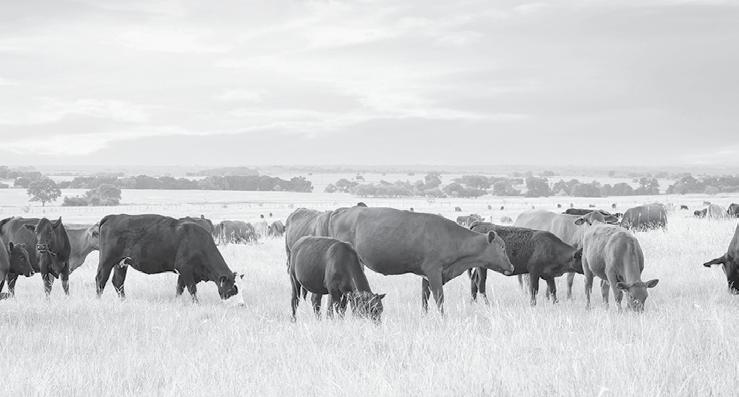
1 Blk Cow, 1310# $7600
2 BWF Cows, avg. 1328# $7400

Walker, Gwen - Lovell
1 Blk Cow, 1525# $7600
Kirby Creek Ranch - Thermopolis
1 Blk Cow, 1325# $7500
1 BWF Cow, 1130# $7100
Baker, Mike - Thermopolis
1 Blk Cow, 1365# $7300
1 Blk Cow, 1375# $6300
Hotler, JB - Powell
1 Red Cow,
“The Colorado River, for all of us working on water in Wyoming, takes up more and more of our time,” he added. “We must first under stand how the Colorado River works from a legal, seven state and basin per spective, because in order to understand the impacts which might come to Wyo ming, we have to understand how the whole basin works.”
This is a very dire situa tion – it has been hot and dry, he noted.
“It’s easy to think about the river system in a context of Wyoming, but whenever we’re dealing with it, Wyo ming has to deal with sev eral other states, two states in the country of Mexico and of course, the federal govern ment – we have 40 million people and 110,000 Wyo mingites relying on the Col orado River – there’re a lot of people outside of this state relying on this river,” said Brown.
The Colorado River not only includes the water inside its geographic basin, where the water actually flows into the main stream, but it also includes areas out side of the Colorado River as well. The Imperial Val ley is the single largest user of water in the entire basin, Brown mentioned.
“Even in the lower basin, where municipal water use is considerably higher than it is in the upper basin, 70 to 75 percent of all the water use in the lower basin is irri
“It’s important to keep these things in mind because generally, as we look for solutions, it’s going to be through one of these three ways,” he said. “As we think about the solutions which might come to fix these problems we’re facing, it’s going to be one of these actions moving forward.”
Currently, Wyoming and the other upper Colorado River Basin states, which includes Utah, Colorado and New Mexico, are obligated to not deplete the flow above Lee Ferry in northern Ari zona below 75 million acrefeet over any 10 year period, or on average 7.5 million acre-feet annually. Projec tions indicate flows could fall below this threshold by 2028.
Brown suspected the ear liest curtailment might hap pen in 2028 if drought con ditions continue and if flows at Lee Ferry fall below a cer tain threshold.
“The way things are going, it’s coming,” said Brown. “The day where we have to do more with less water, is potentially coming.” Curtailment or regulation
“Curtailment is involun tary regulation,” explained Brown. “It’s involuntary reductions in order to com ply with the law – the law in this case, the Colorado River Compact and the 1948 compact.”
In the event of a curtail ment, Wyoming will only be held responsible for its
There are reductions taking place in the lower basin under the existing agreements, he said.
Payne shared, under curtailment, the concept of consumptive use comes in and it’s a little different than under other compacts throughout the state.
“When we’re talk ing about conserving con sumption use, efficiency can actually increase water use,” said Payne.
Payne mentioned if a curtailment is initiated, his team has been working on a basin-wide priority sched ule. An immense amount of work will need to take place if a curtailment is enforced, and a lot more staff will be needed.
Currently, water rights in Wyoming are appropri ated under the first-in-time, first-in-right doctrine. The earlier a right was obtained, the more senior those rights will be.
A curtailment would be applied to those most junior water rights. The 1922 Col orado River Compact does not apply to those water rights appropriated before the compact. No mat ter how much water Wyo ming might be asked to cur tail, it would only apply to those water rights adjudi cated after 1922, mentioned Brown.
Gunn is the editor of the Wyoming Live
Roundup.
com
Duveene E. Ham ilton, 87, of Lander, passed away sur rounded by family on Sept. 18 after a seven year battle with Parkin son’s disease.
Duveene was born to Erma (Yohe) and Ivan Dickinson on May 6, 1935 in Sheridan. They lived near Big Horn, where her father worked as a herdsman for Rice Hereford Ranch. She had wonderful memo ries of learning to ride horses in the shadows of the Big Horn Mountains, where the family lived in a log cabin
When Duveene was nine years old, her sis ter Donna was born. The family purchased a ranch at Ray Lake on the Wind River Reservation and moved from Sheridan. There, she attended Mill Creek School, followed by Fremont County Vocational High School.
Graduating early, she attended Casper Col lege and the Univer sity of Wyoming for a year. She then taught at Crowheart school for the 1953-1954 school year.
On Dec. 5, 1953, she and Bill Hamilton were mar ried in Lander, and the teacher “Miss” Duveene became “Mrs.”
They were married for 67 years. Bill was drafted into the army and in 1955, she moved with him to Anchorage, Ala., where he finished his tour.
After Bill’s mili tary service, the couple moved back to Fremont County. They shared a dream of owning their own ranch. They com bined the cows they each brought to the marriage and ran them on shares while saving money to buy a ranch.
She traveled with Bill while he worked for Gilpatrick Construc tion around Wyoming and based out of River ton. Their two daughters Kim and Kay Lynn were born during this time.
In 1962, they pur chased their first ranch in Lyons Valley and soon after purchased another. Their son Bryan was born after they moved
to the valley. Duveene loved the ranching life, irrigating, riding, help ing with calving and cooking for crews.
She was known for her cooking and mak ing sure everyone had plenty to eat. Bill’s friends often stopped by right around lunchtime, knowing they would be asked in for lunch.
Duveene was a char ter member of the Fre mont County Cowbelles when they organized in 1957, and remained a member of the Cat tlewomen for the next 65 years. She was pas sionate about promoting beef and the ranching industry. She served on the board of Wyoming Agriculture in the Class room, mixing her love of teaching with her love of ranching.
Duveene was a devoted member of the Church of Jesus Christ of Latter-day Saints. She served in all the auxil iaries, but mostly she loved teaching the kids.
Her love of the Lord endured to the end. She had many close and dear friends in her church community.
Duveene formed many deep and last ing friendships over the years through the orga nizations to which she belonged, the ranch ing community and her “Lyons Valley family.”
Above all, Duveene loved her family.
She and Bill traveled around the state and to Colorado to watch their children and grandchil dren participate in sports and activities. She loved to open her home for holiday dinners and pic nics for family, neigh bors and friends.
Duveene was pre ceded in death by her husband Bill, infant son Billy and her parents. She is survived by her children Kim Eklund (Barry), Kay Lynn Palm (Burt) and Bryan (Jennifer); her sister Donna Cranor; sistersin-law Carolyn Ham ilton, Roberta Palmer and Ethelyn St. John; seven grandchildren; 10 great-grandchildren; and numerous nieces and nephews.
Funeral services were held at the Pioneer Museum Livery Stable in Lander on Oct. 1.
Memorials can be made directly to either Anam Cara Caregiv ing, 909 Fremont Street, Lander, WY 82520 or Wyoming Agriculture in the Classroom, PO Box 347, Cheyenne, WY 82003.
Winter wheat produc tion in Wyoming, estimated at 1.62 million bushels, is down 47 percent from 2021 and the lowest production since 1944, according to the Sept. 1 Agricultural Survey conducted by the Mountain Regional Field Office of the National Agricultural Sta tistics Service, U.S. Depart ment of Agriculture.
Winter wheat produc ers seeded 115,000 acres in the fall of 2021 for harvest in 2022, unchanged from acres seeded for the pre vious year’s crop and the lowest since 112,000 acres
DUVALL
raise or where someone can farm.
Recognizing more folks from urban and sub urban areas have moved into rural America since the start of the pandemic, it’s important to invite our new neighbors onto the
Small grain production reported
were seeded in 1938. Acre age harvested for grain was unchanged from last year at 95,000 acres in 2022. Winter wheat yield, at 17 bushels per acre, is down 15 bushels per acre from last year, and is the lowest yield since 12 bushels per acre in 1965.
Wyoming’s barley seeded area, at 77,000 acres, is down 7,000 acres from last year. Harvested area, at 58,000 acres, is down 14,000 acres from 2021. Barley yield, at 93 bush els per acre, is up two bush els per acre from last year. Barley production in 2022
from page 2
farm to demonstrate how we care for the land and our animals. After all, they may be the next candidates for office or witnesses at a hearing.
To help you find out who is running for fed eral and state offices, we
is estimated at 5.39 million bushels, down 18 percent from the previous year and the lowest production since 2007.
U.S. all wheat produc tion totaled 1.65 billion bushels in 2022, up less than one percent from the 2021 total of 1.65 billion bush els. Area harvested for grain totaled 35.5 million acres, down four percent from the previous year. The U.S. yield was estimated at 46.5 bush els per acre, up 2.2 bushels from the previous year.
The levels of produc tion and changes from 2021
launched the iFarm iVote resource. This website can help users register to vote, find voting locations, dis cover ballot information and learn about voting requirements in each state.
I hope you’ll join me in voting this November. Many candidates are driven by a sense of duty and want to do what’s best for their communities and neigh
Austin Snook • 307-290-2161
Taylor Snook • 307-290-2273
Craig Deveraux • 307-746-5690
Dan Catlin • 406-671-7715
by type were: winter wheat, 1.1 billion bushels, down 14 percent; other spring wheat, 482 million bushels, up 46 percent; and Durum wheat, 64 million bushels, up 70 percent.
U.S. winter wheat pro duction for 2022 totaled 1.1 billion bushels, down 14 percent from the 2021 total of 1.28 billion bushels. U.S. barley production was esti mated at 174 million bush els, up 45 percent from the revised 2021 total of 120 million bushels.
For a full copy of the report, visit nass.usda.gov
bors. I encourage you to get to know them and cast your vote for them. No matter which candidates you support, we must never take for granted the right to decide who will repre sent us.
Vincent “Zippy” Duvall is the 12th president of the American Farm Bureau Federation. For more information, visit fb.org
Clint Snook • 307-290-4000
Cheyenne Seymour • 605-641-0638
Casey Sellers • 307-217-2614
Jim Forbes • 307-351-5932
"From the ring, to the video, and in the country, we market your livestock the competitive way."
Market Report • October 5, 2022
Lighter
SPRING CALVES
PATCHWORK PARTNERS, BUFFALO WY
30 BLK-STRCF PC 614 200.50 WT 1,231.07
BLK-STRCF PC 500 225.00 WT 1,125.00
BLK-STRCF PC 566 179.50 WT 1,015.17
BLK-HFRCF PC 477 195.00 WT 929.50
HUGH RONALD & MCPHEE, BUFFALO WY
BLK-STRCF PC 553 216.00 WT 1,194.00
BLK-HFRCF PC 466 194.00 WT 904.04
JOHN AND CATIE HALL, BUFFALO WY
BLK-STRCF BS 545 217.00 WT 1,183.55
BLK-HFRCF BS 500 198.00 WT 990.58
TOM L. STROCK, DOUGLAS WY
MXD-STRCF PC 607 197.00 WT 1,195.29
MXD-STRCF PC 491 222.00 WT 1,089.65
BLK-HFRCF PC 550 185.50 WT 1,020.25
LEVI & KRYSTAL GAY, BANNER WY
RED-STRCF PC 644 191.00 WT 1,230.58
RED-STRCF PC 480 223.00 WT 1,070.40
RED-HFRCF PC 572 176.50 WT 1,009.97
COREY & VICKI JOST, SHERIDAN WY
BLK-STRCF PC 565 213.50
1,206.27
BLK-HFRCF PC 541 184.00 WT 994.75
RANCH LLC, SHERIDAN WY
BLK-STRCF BS 471 214.00
1,007.94
BLK-HFRCF BS 480 186.00 WT 892.80
ETHAN ROBERT HEPP, KAYCEE WY
BLK-STRCF BS 449 223.00 WT 1,002.26
2 BLK-COW 1293 78.50 WT 1,014.61
1 BLK-COW 1360 80.00 WT 1,088.00
1 BLK-COW 1365 74.50 WT 1,016.92
HAT RANCH LLC, KAYCEE WY
1 BLK-STR 2040 84.00 WT 1,713.60
JOHN A HEPP, BUFFALO WY
4 BLK-COW 1553 78.00 WT 1,210.95
FIELDGROVE RANCH LLC, BUFFALO WY
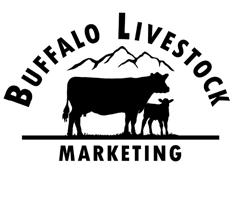
7 RED-COW 1394 76.00 WT 1,059.65
ROBERT H BORGIALLI, BUFFALO WY
1 BLK-COW 1390 75.00 WT 1,042.50
1 BLK-COW 1410 71.00 WT 1,001.10
JOHN AND CATIE HALL, BUFFALO WY
23 BLK-COW 1357 77.50 WT 1,051.80
11 BLK-COW 1512 76.00 WT 1,149.32
1 BLK-COW 1290 74.00 WT 954.60
JUSTIN J OR JOHN K WEST, SHERIDAN WY
1 BWF-COW 1455 81.00 WT 1,178.55
RONDA J.L. OR DANIEL MORSE, LINCH WY
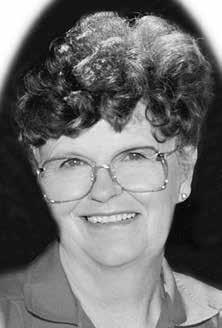
3 BLK-COW 1793 72.50 WT 1,300.16
2 BLK-COW 1545 73.00 WT 1,127.85
NORTH FORK RANCH INC, BUFFALO WY
1 BLK-COW 1420 76.00 WT 1,079.20
1 BLK-COW 1545 76.00 WT 1,174.20
JAYSON DUANE FOSS, BUFFALO WY
1 BLK-COW 1315 75.00 WT 986.25
HOAGLAND FAMILY TRUST, BANNER WY
1 BWF-COW 1475 73.00 WT 1,076.75
DONALD JEFFERY &/OR JODY FENS, GILLETTE W
1 RED-COW 1525 71.00 WT 1,082.75
LAKE,
STEWART,
HOGAN,
Cindy Garretson-Weibel is the director of the Wyo ming Leadership Education and Development (L.E.A.D.) program and throughout her 30-plus year career, she has always had a hand in advo cating for the next generation of ranchers and the agricul ture industry.
Early career Cindy grew up on a ranch outside of Sara toga. Upon graduating high school, she went to the Uni versity of Wyoming to study agriculture communications. Shortly afterwards, Cindy went to work for the Wyo ming Stock Growers Asso ciation (WSGA) as their CowCountry editor in 1987, and eventually became the WSGA executive director.
“I was the youngest exec utive director they ever had – I was 28 years old,” she
says. “I’m the only woman in recent history to hold the position.” It was a great way to launch her ag advocacy career, she adds.
In 1998, she went to work for the Wyoming Business Council (WBC) and was a member of their agribusiness division team and served as agribusiness director for 11 years. Since her involvement in the WBC, she has played a significant role in getting the Wyoming L.E.A.D. program up and running again.
“We had several differ ent funding partners over the years, and I was on the non profit organization called the Wyoming Agricultural Leadership Council (WALC) at the time,” she explains.
“We had been trying to find a sponsor of some sort, and it actually worked out when the WBC was created.
They offered me a job and I accepted. One of the first things we did for the agri culture industry was get the Wyoming L.E.A.D. program operating again.”
WALC took over com plete administration of the program under Cindy’s lead ership in 2015.
Wyoming L.E.A.D.

The Wyoming L.E.A.D. program is a leadership pro gram for producers and agribusiness professionals. The program was founded in 1984 and is designed to provide education to adults/ individuals aspiring to become leaders in agricul ture and Wyoming commu nities, shares the program’s webpage.
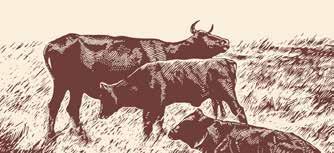
Program participants spend 16 months in training.
“We help participants hone their communication
and leadership skills,” she shares. “So, we work on pro fessional development, but we also make sure we pro vide education on the differ ent industries in the state of Wyoming and tour differ ent agribusinesses as well as producers’ operations so they can learn all about agricul ture as a whole.”
This program is a way to connect all aspects of agriculture for a common voice, she explains. It’s designed to accelerate indi viduals’ leadership skills and development.
As the director, Cindy does a variety of facilitating and funding support activi ties for the program. The pro gram is designed to develop and train a network of lead ers who can speak forcefully and articulately for agricul ture and Wyoming com

munities. Participants gain confidence and knowledge through group discussions, personal presentations and networking opportunities.
Topics range from com munication, family busi ness, leadership, agricul ture policy, trade, rural eco nomics and marketing, nat ural resources, energy, state and national government and value-added agriculture.
The webpage notes, 16 classes of leaders with a total of 257 individuals have graduated from the program. Class 17 held their first semi nar in September.
Roughly 83 percent of alumni are involved in local and state agriculture and community organizations, 84 percent are officers, board directors and executive offi cers of national commissions and ag organizations, 89 per cent have been elected or appointed in public positions and three percent have been employed by agriculture or agribusiness executive direc tors, administrators and head of offices.
Women in ag
In Cindy’s 30-plus year career, agriculture has been mostly a male-dominated profession, but women have always played a role in the industry, and today even more women are getting involved.
“More and more women have the opportunity to become involved and actu ally have a say,” she shares. “Women have always been involved in agriculture – they have been the ones nurtur ing and bottle feeding calves and helping in the hay field, they just haven’t always been
given credit and ownership.”
Cindy notes more women own ranches and operations now than in the past.
“It’s exciting to see women getting the recogni tion and opportunity for own ership of farming and ranch ing operations,” she shares. “I’ve always felt I wanted to help agriculture in the state even though I wasn’t directly producing or ranching in the industry throughout my career.”
Cindy offers women in agriculture some advice, say ing, “Get involved. There are a lot of opportunities to have a voice in agriculture, but it’s easier to do if you get involved in organizations and surround yourself with other people who are shar ing their voice. It makes for a stronger opportunity for us to get our message out to those who don’t understand agri culture if we’re all doing it together.”
In addition to raising her two daughters Brook and Cassidy with her husband Clay, Cindy continues her work cultivating producers in the agriculture community for today, tomorrow and the future.
“Ag is my passion,” she concludes. “I’ve been in the service industry for a long time and I envision myself continuing to help agriculture in the state of Wyoming.”
For more information on the Wyoming L.E.A.D. pro gram, visit wylead.com
Brittany Gunn is the edi tor of the Wyoming Live stock Roundup. Send com ments on this article to roundup@wylr.net.
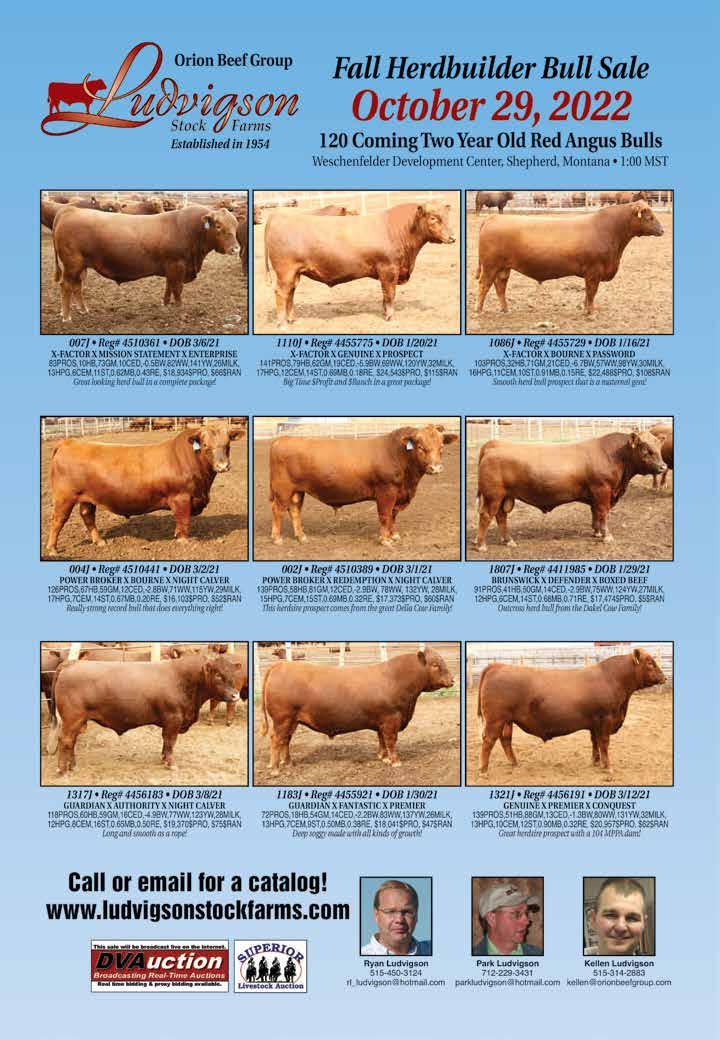
Sept. 17-Oct. 31 Green Acres Corn Maze, every Saturday and Sunday, Casper. For more information, visit greenacrescornmaze.net or call the maze hotline at 307797-8796.
Oct. 11 Governor’s Mental Health Summit, 7 a.m.-5 p.m., Nicolaysen Art Museum, Casper. For more information and to register, visit bit.ly/governors-mh-summit
Oct. 11 Wyoming Water Development Commission Infrastructure Public Meet ing, 6-8 p.m., Lyman. For more information, contact Chace Tavelli at chace. tavelli@wyo.gov or 307-777-7626 or Jay Schug at jschug@trihydro.com or 970-449-2921.
Oct. 12 Wyoming Water Development Commission Infrastructure Public Meet ing, 6-8 p.m., Pinedale. For more information, contact Chace Tavelli at chace. tavelli@wyo.gov or 307-777-7626 or Jay Schug at jschug@trihydro.com or 970-449-2921.
Oct. 13-16 Montana Wool Harvesting School, Molt, Mont. To register, e-mail Denise Hoepfner at hoepfner@montana.edu.
Oct. 14-22 The Northern International Livestock Exposition, Billings, Mont. For more information, visit thenile.org
Oct. 15 Wyoming Rocks: Critical Resources for a Sustainable Future, 10 a.m.-1 p.m., Geological Museum at the University of Wyoming, Laramie. For more information, e-mail geolmus@uwyo.edu or christina.george@wyo.gov.
Oct. 17-19 Wyoming Water Association Annual Meeting, Hilton Garden Inn, Laramie. For more information and to register, visit wyomingwater.org/annual-meeting
Oct. 18 Beef Quality Assurance Training, 6-8 p.m., Prairie Winds Community Cen ter, Bridgeport, Neb. For more information, e-mail nebraskabqa@unl.edu or call 308-633-0158.
Oct. 19-20 Wyoming Section Society of Range Management Fall Meeting, Buffalo Bill Center of the West, Cody. For more information, visit wyomingrangelands. org/fallmeeting
Oct. 26 Wyoming Water Development Commission Infrastructure Public Meet ing, 6-8 p.m., Casper. For more information, contact Chace Tavelli at chace. tavelli@wyo.gov or 307-777-7626 or Jay Schug at jschug@trihydro.com or 970-449-2921.
Oct. 27 Wyoming Water Development Commission Infrastructure Public Meet ing, 6-8 p.m., Buffalo. For more information, contact Chace Tavelli at chace. tavelli@wyo.gov or 307-777-7626 or Jay Schug at jschug@trihydro.com or 970-449-2921.
Nov. 1-3 Wyoming Weed and Pest Council Fall Conference and Annual Meeting Holiday Inn Cody, Buffalo Bill Village, Cody. For more information, visit wyo weed.org/meetings-conferences/conference
Nov. 4-7 Angus Convention, Salt Lake City, Utah. For more information, visit angus convention.com
Nov. 5 Wyoming FFA Blue Jeans Ball, 5 p.m., Campbell County Senior Center, Gillette. To buy tickets, visit wyoffafoundation.com/blue-jeans-ball
Nov. 8 Wyoming Water Development Commission Infrastructure Public Meeting, 6-8 p.m., Riverton. For more information, contact Chace Tavelli at chace.tavelli@wyo.gov or 307-777-7626 or Jay Schug at jschug@tri hydro.com or 970-449-2921.
Nov. 9 Wyoming Water Development Commission Infrastructure Public Meet ing, 6-8 p.m., Powell. For more information, contact Chace Tavelli at chace. tavelli@wyo.gov or 307-777-7626 or Jay Schug at jschug@trihydro.com or 970-449-2921.
Nov. 10 Collegiate Discussion Meet, 4 p.m., Casper College, Casper. For more information, visit wyfb.org/yfr/competitive-events/ or e-mail kclark@wyfb.org.
Nov. 10 Wyoming Water Development Commission Infrastructure Public Meet ing, 6-8 p.m., Worland. For more information, contact Chace Tavelli at chace. tavelli@wyo.gov or 307-777-7626 or Jay Schug at jschug@trihydro.com or 970-449-2921.
Nov. 10-12 Wyoming Farm Bureau 103rd Annual meeting, Best Western, Casper. For more information, visit wybf.org
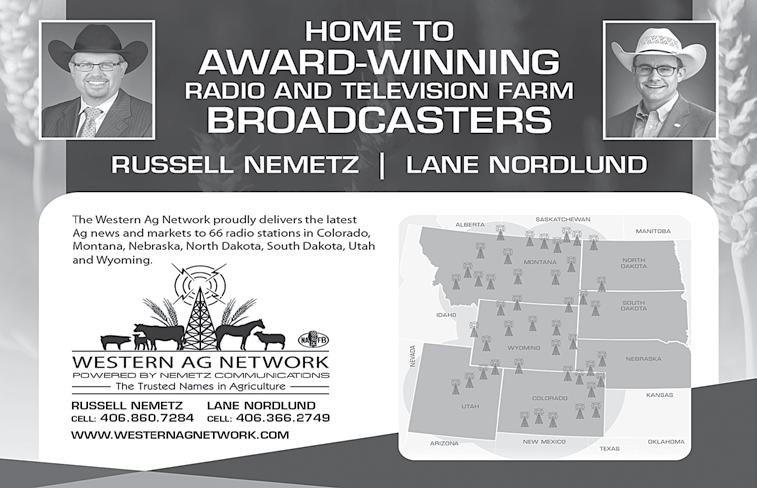
Nov. 10-13 Working Ranch Cowboys Association World Championship Ranch Rodeo, Amarillo, Texas. For more information and tickets, visit wrca.org/wcrr
SALES
Oct. 10 Ox Bow Ranch Female Sale, at the ranch, Wolf Creek, Mont., 406-2354281, oxbowranchangus.com
Oct. 24 J & L Livestock Montana Angus Female Bonanza XIX, PAYS, Billings, Mont., 406-861-5664, 406-200-1880
Oct. 26 Micheli Ranch Bull Sale, at the ranch, Ft. Bridger, 307-252-0437, 307-7477786, 307-747-3897, micheliranch.com
Oct. 29 Ludvigson Stock Farms Fall Herdbuilder Bull Sale, Weschenfelder Devel opment Center, Shepherd, Mont., 515-450-3124, ludvigsonstockfarms.com
Oct. 30 Nansel’s Flying N Ranch Complete Angus Dispersion, Miles City Live stock Commission, Miles City, Mont., 406-853-6473, 406-951-6267, 515491-8078
SALESNov. 7 Pharo Cattle Company Sale, Burlington, Colo., 800-311-0995, pharocattle.com
Nov. 9 Heart K Angus Ranch Sale, at the ranch, Lewistown, Mont., 406-428-8138

Nov. 10 Bieber Fever Fall Production Sale, at the ranch, Leola, S.D., 605-439-3628, bieberredangus.com
Nov. 12 Leachman Cattle of Colorado Fall Harvest Sale, Leachman Bull Barn, Fort Collins, Colo., 970-568-3983, leachman.com
Nov. 12 HD Dunn & Son Angus Ranch 23rd Annual Bull Sale, at the ranch, Tetonia, ID, 208-221-3866, 402-382-5810, hddunn.com
Nov. 17 K2 Red Angus Fall Female Sale, at the ranch, Wheatland, 307-331-2917, k2redangus.com
Nov. 17 Largent and Sons “Prime World” Sale, at the ranch, Kaycee, 307-7382443, 307-267-3229, largentandsons.com
Nov. 19
Hollow Top Angus Production Sale, Montana Livestock Auction, Ramsay, Mont., 406-223-5078, hollowtopangus.com
Nov. 19 Redland Angus Annual Production Sale, Buffalo Livestock Auction, Buf falo, 307-250-1548, redlandangus.com
Nov. 19 Pharo Cattle Company Sale, Three Forks, Mont., 800-311-0995, pharo cattle.com
Nov. 19 Amdahl Angus and Hereford Annual Fall Bull and Female Sale, at the ranch, Rapid City, S.D., 605-929-3717, 605-999-6487, amdahlangus.com
Nov. 20
The Wyoming Angus Association 12th Annual Wyoming Select Female Sale, Archer Event Center, Cheyenne, 307-216-0090, 307-6301539, wyomingangus.org
Nov. 22 Paint Rock Angus Annual Fall Sale, at the ranch, Hyattville, 307-469-2206, 307-271-2000, 307-272-5332, 307-578-7392, paintrockangus.com
POSTCARD from the Past
 Compiled by Dick Perue rrichardperue@gmail.com
Compiled by Dick Perue rrichardperue@gmail.com
Cattle from “Valley of Champions”
Carbon County, and especially the Upper North Platte River Valley, has long been cattle coun try. Stories from a long time ago supported this statement, with the Sara toga/Encampment area known as the “Valley of Champions” when it came to cattle production. We offer these stories:
Registered Here ford bulls from the fer tile Upper North Platte River Valley in south cen tral Wyoming captured several top prizes at the 1916 Denver, Colo. Stock Show.
Grand Champion Her eford bull named Wyo ming, a senior yearling sired by Beau Carlos II from the Davis Ranch located along the North Platte River between Sara toga and Encampment, was bred and shown by ranch owner L. G. Davis and sold in the livestock sale for $5,000, the high est price ever paid for a bull at the time.
Capt. Davis: Progressive rancher
According to an article in The Saratoga Sun, Capt. Davis established the JX ranch eight miles south of Saratoga on the North Platte River in about 1900. He was known as “Cap
tain” after returning from serving with Teddy Roos evelt and the Rough Rid ers in the Spanish Ameri can War.
Enterprising and ener getic, Capt. Davis experi mented successfully with irrigation and the rais ing and feeding of alfalfa and native hay. Irriga tion ditches he plowed at the turn of the last cen tury are still in use today. His Hereford cattle gained a national reputation and in addition to topping the Denver sale, he also received the highest price paid for a carload of steers at the Kansas City, Mo. market in the 1910s.
When he established the valley’s first herd of over 100 registered Her eford cattle, the Lara mie Boomerang reported he had started a Hereford breeding revolution: “The cattle were a departure from those of the past –heavier bone, shorter legs, longer barrel and heavier weight,” all of which con tributed to greater meat development.
Louis Grant Davis married Helen Elizabeth Turnbull in 1891 in Sara toga. She came from Illi nois to teach in the valley.
She was a college graduate which was most
unusual for women at the time, according to a fam ily history account. They had two children, Doro thea and Robert (Bob).
Louis was one of the most colorful and wellknown members of the town of Saratoga, and he and his wife frequently entertained the governor and well-known leaders of the state at the Davis Ranch. An undated pic ture in the Martin/Perue collection shows Presi dent Teddy Roosevelt and Capt. Davis on horseback at an undisclosed location, possibly the Davis Ranch. Others in the photograph include former Wyoming Gov. Bryant Brooks and former Wyoming Sen. Francis Warren.
A natural leader, Capt. Davis was president of the Saratoga Valley Stock Growers Association in 1900 when the organiza tion’s first action was the printing of a brand book.
When the Saratoga State Bank was chartered on April 1, 1899, Davis was a founding director for the Cosgriff Bros. When the Cosgriffs sold out in 1920, Davis became bank president. He held office until 1926 when the bank was sold. At this time, he also sold his ranch to R. J. Spears and then retired to Kansas City, Mo.
Presently, the ranch is part of the Kelly Cattle Co. Over the years, it was also known as the Lazy River and McIlvaine’s Lazy CJ.
Capt. Davis returned to his beloved Wyoming in 1951 at the age of 84 to be buried with military and state honors in the Cheyenne cemetery.
The Upper North
country.
also
have

Un
WEEKLY CATTLE AUCTIONS
FOR THE WEEK ENDING May 24, 2019
PAYS 205-230 192-205
175-215 165-195 155-177
Crawford 238 200-212 178-217 165-191.50
1300 184 176-198 161-190 155-159
152.75-178 86.50-103.50 158.25-173
58-91.50
Riverton 223-239 201-218 167-210 143-182.60 154-169.75 151-166.50 84.50-92.50
1714 191-197 152.50-188 160-175.50 155-169 169 155.75-165.50 67-88.50
Torrington 231-260 210-234 190-220 179-206 178-196 162-185 93-100 103-122
7078 205-241 190-212 175-213 177-179 168-178 157.25-178 67-93
St. Onge 214-235 156-193 135.50-187 164.50-180 89.50-129
1500 140-146 175-200 155-177 130-179.50 166.50-178 152.50-170 79-91.50
Big Horn Basin 195-214.50 189-207.50 181-200
Daily Grower Bids
WEEKLY SHEEP AUCTIONS
Ft. Collins: 35 lbs 50-60 lbs 152.50-162.50; 60-70 lbs 130.00135.00; 70-80 lbs 135.00-155.00. hair 50 lbs 230.00; 60-70 lbs 195.00-225.00.
South Dakota: 40-50 lbs 172.00-180.00; 50-60 lbs 151.00185.00; 60-70 lbs 141.00-180.00; 70-80 lbs 125.00-155.00; 8090 lbs 119.50-134.00; 90-100 lbs 111.00-151.00; 100-110 lbs 100.00-111.00.
Billings: 27 lbs 151.00; 34 lbs 150.00; 40-50 lbs 157.50-158.00; 50-60 lbs 142.00-158.00; 60-70 lbs 137.00-153.00; 70-80 lbs 123.00-138.00; 80-90 lbs 113.00-130.00; 90-100 lbs 110.00118.00; 100-110 lbs 108.00-117.50; 110-120 lbs 108.00-116.50; 120-130 lbs 101.00-115.00.
Replacement Ewes: Medium and Large 1-2
San Angelo: hair ewe lambs 70-85 lbs 247.00-280.00/cwt; yearling hair 80-115 lbs 160.00-183.00/cwt; mixed age hair 85150 lbs 127.00-145.00/cwt.
Ft. Collins: hair ewe lambs 190.00-250.00/head; young hair 175.00/head.
National Sheep Summary
As of September 30, 2022
LIVE CATTLE FUTURES
SETT PRICE
Month Week Prev This Week Change
OCTOBER 144.13 145.33 +1.20
DECEMBER 147.78 147.88 +0.10
FEBRUARY 151.35 151.63 +0.28
APRIL 154.98 155.80 +0.82
JUNE 151.25 152.55 +1.30
FEEDER CATTLE FUTURES
SETT PRICE
Month Week Prev This Week Change
OCTOBER 177.33 175.73 -1.60
NOVEMBER 177.83 176.43 -1.40
JANUARY 178.43 177.85 -0.58
MARCH 180.50 179.90 -0.60
APRIL 184.68 183.83 -0.85
WHEAT FUTURES
SETT PRICE
Month Week Prev This Week Change
DECEMBER 8.96 8.79 -0.17
MARCH 9.08 8.93 -0.15
MAY 9.15 9.00 -0.15
JULY 8.99 8.91 -0.08
CORN FUTURES
SETT PRICE
Month Week Prev This Week Change
DECEMBER 6.69 6.75 +0.06
MARCH 6.76 6.83 +0.07
MAY 6.77 6.85 +0.08
JULY 6.72 6.80 +0.08
OATS FUTURES
SETT PRICE
Month Week Prev This Week Change
DECEMBER 3.83 3.97 +0.14
MARCH 3.86 3.99 +0.13
MAY 3.87 4.01 +0.14
JULY 3.90 4.04 +0.14
SOYBEAN FUTURES
SETT PRICE
Month Week Prev This Week Change
NOVEMBER 14.11 13.58 -0.53
JANUARY 14.20 13.70 -0.50
MARCH 14.25 13.81 -0.44
MAY 14.29 13.90 -0.39
CUTOUT
Compared
last week slaughter lambs
5.00-30.00 higher. Slaughter ewes were weak to 20.00 lower. Feeder lambs sold mostly steady to 10.00 higher. At San Angelo, TX 6,078 head sold. Equity Cooperative Auction sold 330 slaughter lambs in North Dakota. Superior Video sold 500 slaughter lambs in New Mexico, 2150 feeder lambs in Idaho and 1500 feeder lambs in Utah. Western Video sold 2590 feeder lambs and 270 replacement ewes in California, 1485 feeder lambs in Idaho and 1790 feeder lambs in Utah. In direct trading slaughter ewes and feeder lambs not tested. 4,321 lamb carcasses traded with no trend due to confidentiality. All sheep sold per hundred weight (CWT) unless specified..
Slaughter Lambs: Choice and Prime 2-3 San Angelo: wooled and shorn 105-140 lbs 110.00-130.00.
Ft. Collins: wooled and shorn 100-125 lbs 95.00-116.00. YG 3-5: 135-220 lbs 92.50-110.00. South Dakota: wooled and shorn 100-150 lbs 101.00-126.00. YG 3-5 150-170 lbs 98.00-108.00. Billings: wooled and shorn 100-130 lbs 101.00-106.00; 150180 lbs 63.00-79.00.
Equity Coop: shorn 147 lbs 118.50.
Slaughter Lambs: Choice and Prime 1-2
San Angelo: hair 40-60 lbs 256.00-309.00, few 312.00318.00; 60-70 lbs 238.00-280.00, few 290.00-314.00; 70-80 lbs 208.00-261.00; 80-90 lbs 198.00-234.00; 90-100 lbs 200.00201.00. wooled and shorn 59 lbs 259.00.
Ft. Collins: wooled and shorn 71 lbs 137.00; 80-90 lbs 115.00-135.00; 90-100 lbs 125.00-130.00. hair 80-90 lbs 160.00-185.00; 93 lbs 132.50.
South Dakota: wooled and shorn 74 lbs 160.00; 80-90 lbs 110.00-135.00; 90-100 lbs 105.00-114.00. hair 94 lbs 122.00.
Billings: wooled and shorn 59 lbs 175.00; 60-70 lbs 147.00162.00; 70-80 lbs 119.00-128.00, few 170.00; 80-90 lbs 115.00-125.00; 90-100 lbs 90.00-107.00.
Slaughter Ewes
San Angelo: Good 3-4 (very fleshy) 34.00-48.00; Good 2-3 (fleshy) 75.00-95.00; Utility and Good 1-3 (medium flesh) 90.00-110.00; Utility 1-2 (thin) 81.00-100.00; Cull and Utility 1-2 (very thin) 55.00-77.00; Cull 1 30.00-55.00.
Ft. Collins: Good 3-4 (very fleshy) 59.00-67.00; Good 2-3 (fleshy) 60.50-71.00, hair 72.50-92.50; Utility 1-2 (thin) 52.00 63.00, hair 42.50-72.00; Cull 1 no test.
South Dakota: Good 3-4 (very fleshy) 55.00-80.00; Good 2-3 (fleshy) 64.00-95.00; Utility 1-2 (thin) 54.00-85.00, hair 90.00; Cull 1 21.00-25.00.
Billings: Good 3-4 (very fleshy) 59.00; Good 2-3 (fleshy) 57.00-70.00, few 87.00; Utility 1-2 (thin) 58.00-71.00; Cull 1 no test.
Feeder Lambs: Medium and Large 1-2 San Angelo: 60-70 lbs 164.00-180.00. hair 37 lbs 303.00; 40-50 lbs 295.00-317.00; 50-55 lbs 307.00-309.00.
South Dakota: ewe lambs 82 lbs 142.00/cwt, 90-100 lbs 145.00-222.00/cwt, 100-105 lbs 121.00-127.00/cwt; young 130.00/head; middle age 145.00-150.00/head; aged 125.00/ head.
Billings: no test.
Sheep and lambs slaughter under federal inspection for the week to date totaled 33,000 compared with 33,000 last week and 37,000 last year.
Source: USDA AMS Market News, San Angelo, Texas
National Wool Review
As of September 30, 2022
WIGGINS FEEDYARD, LLC
HIRING FULL-TIME EM PLOYEE: Current driver’s license required. Call Sue Wiggins, 308-279-0924, email sswiggins@wiggins feedyard.com, 10077 U.S. 385, Bridgeport, NE 69336, references with phone num bers 10/22
LIVESTOCK SUPPLEMENT
TERRITORY REPRESENTA
TIVE: Family-owned livestock supplement manufacturer seeks highly motivated, selfstarting individual for regional sales position. Previous agri cultural sales preferred. Re gion includes Wyoming and western Nebraska. Position entails maintaining relation ships and providing sales support to existing dealers while acquiring new dealer prospects. Overnight travel required. Salary D.O.E. plus commissions. Benefits pro vided. To apply, call 406248-3631 or send resume to kellie@nutralix.com 10/22
RANCH MAINTENANCE/ANI
MAL CARE: Looking for a re liable, self-motivated individual with a good work ethic that has experience in ranch work, in cluding maintenance and up keep at a ranch with several outbuildings, plus horse and animal care. Proven organiza tional skills and attention to de tail required. Job facilities are located 17 miles west of Chey enne, WY. Applicants MUST possess a valid driver’s license, have reliable transportation and be able to work a flexible schedule. Requires working every other weekend. Full-time position. Call 307-275-2090 or e-mail resume to brittiny@rf holdings.org 10/15
FORTRESS DEVELOPMENT
SOLUTIONS NOW HIRING FOR THE FOLLOWING POSI TIONS ● CDL A with tanker en dorsement ● CDL B ● Equip ment operator ● Roustabout ● Ranch hands ● 23691 CR 60 1/2, Greeley, CO 80631, 970353-6666, griselda.islas@ fortressds.com, www.for tressds.com 10/8
NOW HIRING ~ WORK!
WORK! WORK! Experienced Class A tanker drivers needed. 401(k), paid vacations, health
AGRI-ONE FINANCIAL: Farm/ranch and all commer cial loans. RATES AS LOW AS 4.5%. We have been help ing with all aspects of agricul tural, commercial financing and management for years.
LET US HELP YOU on a consulting level with manage ment to increase profitability, deal with and fix credit prob lems and for all your financing needs. WE CARE AND HAVE WORKING PROGRAMS de signed for the farmer/rancher and not the banker. Please call Steve, 303-773-3545, or check out our website www. agrionefinancial.com . I will come to you and get the job done!! 10/8


WYOMING BRAND FOR SALE: RRC, RSH. Expires Dec. 31, 2022, $1,000 plus $137.50
Call 307575-2016 10/22
WYOMING BRAND FOR SALE: LRC, BS, LSH. Dues paid to Dec. 31, 2022. No irons included, $3,000. Call 307746-8243 10/22

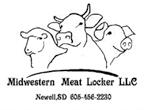

BORDER COLLIE PUP
PIES FOR SALE: Traditional black and white, long hair. Out of trophy winning, work ing bloodlines. Born Sept. 19, $500. Guranteed to work!! Call 307-645-3322 10/15
AKC REGISTERED PEM BROKE WELSH CORGI PUPS FOR SALE!! They are the sweetest things ever!!
Both parents are excellent tempered. Mother Rosie is the sweetest ever and dad Roscoe is a fun, loving, bouncy boy. Both are great ranch dogs. Ready to go on Oct. 10. Text or call 701-260-1207. To view photos, go to www.wylr.net in the classifieds 10/22
AKC LAB PUPPIES: All col ors available, whites, blacks, yellows, dark chocolates and dark reds. Excellent hunters, family companions. Full AKC registration. Shots, wormed, dewclaws removed. All pup pies are cute, but it’s what they grow into that counts. Not all Labs are the same. Proud to own!! Been raising qual ity AKC Labradors for 25-plus years. Look at the rest but buy the best. Both parents on site for viewing. Will sell quickly!! $200 deposit, picking order is when the deposit is received. Doug Altman, Mitchell, S.D. Call/text 605-999-7149, click the “our labs” tab on the website for pictures, www. southdakotayellowlabs.com 10/8
AKBASH LGD PUPPIES: Beautiful guardians from phe nomenal workers. Parents are proven guardians and have chased coyotes and strays off our property. Great for livestock protection or security for your property. Available after Sept. 22. Delivery to Billings, MT on Oct. 7. Will have first vaccine and deworming, $500. Call 307-431-4540. To view photos, go to www.wylr.net in the clas sifieds 10/8
GREAT PYRENEES PUP PIES FOR SALE: Ranch raised, run with livestock ev ery day, parents onsite, prov en bloodlines. Ready to go to work!! Have been raising these fantastic LGD for 40+ years, $1,000. ALSO, TWO 6-MONTH-OLD MALES run ning with livestock. For more information, call 406-2077674 10/8
AKAUSHI CATTLE FOR SALE: Thirty yearling fullblood Akaushi bulls. Five 2-year-old full-blood Akaushi bulls. Twenty-five 1/2 and 3/4 blood Akaushi/Angus cows, 4 to 7 years old, exposed to full-blood Akaushi bulls, calv ing April 1, 2023. Ten full-blood Akaushi cows with papers 4 to 10 years old, exposed to full-blood Akaushi bulls. Ap proximately 90 steer and 90 heifer Akaushi cross Angus calves available January 2023, weaned at 60 days, DNA veri fied to ensure authenticity. ALSO, premium Akaushi ham burger, one-pound packages, $5/lb. Call Mike Mellott, 719740-040 10/29
25 RED ANGUS AND RED BALDY COWS: April/May cal vers. Have been vaccinated this fall. Bred for disposition, calv ing ease, mothering ability and fertility. Call evenings, 406-2773282 or 406-277-3887 10/15
Angus
YEARLING AND VIRGIN 2-YEAR-OLD BLACK ANGUS BULLS AVAILABLE: If you are looking for a stress free calving season, this group offers low birthweights and EXCEPTION AL EPDs. Current EPDs avail able on our website www.ant lersangusranch.com or call Earl, 307-660-4796 10/29
Clay Creek Angus
250 BLACK ANGUS BRED HEIFERS: South Dakota ori gin, OCVD, exposed to proven LBW Black Angus bulls for 45 days. Start calving Feb. 1, 2023. References available. Please call 785-394-1955 (cell), 785-394-2374 (home) or 785-731-5067 10/8
Custom Feeding
FULL CARE FOR FALL WIN TER COWS AVAILABLE. ALSO, backgrounding for calves. Call Ian, 307-4219116 10/8
WE HAVE PEN SPACE AND FEED AVAILABLE FOR BACKGROUNDING CALVES, developing re placement heifers or feeding cows. Durbin Creek Ranch/ Washakie Feeders. Call 307921-3021 10/22
CATTLE WANTED!! Look ing for 1,000-1,200 calves to background. Thirteen miles west of Martin, S.D. Call Rod ney, 605-454-0053 or Kory, 605-454-0123 10/8
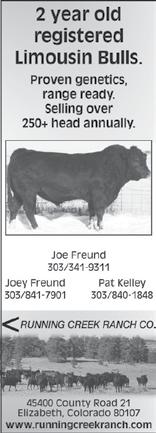
WIGGINS FEEDYARD, AC CEPTING CATTLE OF ALL CLASSES: Cows, yearlings or calves to background or finish. Call 308-262-1140 (of fice), Steve, 308-279-1432 (cell) or Sue, 308-279-0924 (cell) 10/22
BEARMOUNTAIN BEEF INC, IN HAWK SPRINGS, WY has USDA and custom exempt processing slots available. All product is vac uum sealed for extended freezer life and quality appearance. Give us a call to book your slot at 307-338-2751 or check out our website www.bearmountain beef.com 10/8
Pasture Wanted
PASTURE WANTED for 2,000 yearlings and 500 pairs. Can split into smaller bunches. 701523-1235 11/26
HORSES: BUY, SELL, TRADE. Will pick up. Call Dennis Black, 307-690-0916 10/8
SEVEN-YEAR-OLD BAY GELDING FOR SALE. Has been used in all sorts of ranch work: Been roped off of, used in brandings and trailer loadings. Located in central Wyoming. Call 307-851-1606 10/22
GET READY FOR THE RIDE!!
SELECTION of saddles, HEADSTALLS,
LS CUSTOM
HAMPSHIRE AND SUFFOLK RANGE RAMS: Yearling rams and 2-year-old stud rams available. B. ovis and scrapie free. Vet checked and semen tested. Ready to work, $550/ head. Raised in eastern Mon tana for nearly 30 years. Deliv ery options. Call or text Gibbs Range Rams, Pat, 406-9772852, Jordan, MT. To view pho tos, go to www.wylr.net in the classifieds 10/8
HAY FOR SALE: Grass, alfalfa and STRAW. Delivery available!! Call 307-630-3046 10/29
300 ROUND BALES HIGH QUALITY SUDANGRASS HAY, bales weighing approxi mately 1,100 lbs. each. 400
ROUND BALES EXCELLENT QUALITY THIRD CUTTING
ALFALFA, bales weighing ap proximately 1,425 lbs. each.
100 ROUND BALES WHEAT STRAW , excellent quality, bales weighing approximately 950 lbs. each. 300 ROUND
BALES WHEAT FORAGE
HAY, great quality, bales weighing approximately 1,100 lbs. each. All put up right, test results available. Call for pric ing, 406-665-7521, Hardin, MT 10/29
150 ROUND BALES OF 2022
ALFALFA: Second and third cutting. Located 4 miles south west of Fort Laramie, WY. Call 307-715-6184 10/15
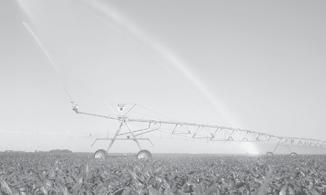
2022 HAY FOR SALE: Alfalfa, oats and Sudangrass hay. Call Earl, 307-660-4796 10/29
HORSE/COW HAY FOR SALE: Small squares, grass/ alfalfa, covered, $10/bale. ALSO, large rounds and small squares of alfalfa. Located in Sheridan, WY. Delivery pos sible. For more information, call 307-752-5920 10/15
2022 AND 2021 HAY FOR SALE: Alfalfa, alfalfa/grass and grass mix. ALSO , alfalfa/ oats, alfalfa/oats/millet and straight millet. 2022 SECOND CUTTING ALFALFA, 2022 oat hay and 2022 millet. All in net-wrapped round bales. Semi load delivery available. Call for pricing, 701-690-8116, please send a text if no an swer or keep trying 10/22
BARLEY STRAW: Certified weed-free small squares, $4/bale. ALSO round bales. Greybull, WY area. Call 307762-3878 or 307-202-0108, leave message 10/22
VALLEY VIDEO HAY MAR KETS, LLC: Wyoming and western Nebraska hay avail able. Call Barry McRea, 308235-5386, www.valleyvideo hay.com 10/22

CERTIFIED BARLEY STRAW FOR SALE, 3x4. Cody, WY. Call 307-899-1952 TFN
2022 BARLEY STRAW FOR SALE, 3x3 bales. ALSO, other hay available. Call 307-3500350, Farson, WY 10/15
FIRST AND SECOND CUTTING ALFALFA HAY FOR SALE: Lo cated in Otto, WY, west of Basin, WY. Call 307-250-7846 or 307254-4957 10/15

GOOD QUALITY HAY FOR SALE: Put up right, bales around 1,400 lbs. Call 605842-5515 10/15
ATVs
JOHN DEERE GATOR 6x4,
ONLY 420 HOURS!! Comes with electric bed lift. Used for hauling wood and gravel on our ranch. Fun to drive. Easy start. Always stored indoors. Crack in plastic fender, otherwise great. Runs well. Comes with small winch and long, heavy cable. Sturgis, S.D. Call 605-381-5321. To view photos, go to www.wylr. net in the classifieds 10/15
ROADGRADER: Comes with 4 chains, extra front tires. Used on our ranch to clear road of heavy snows and blade gravel. Does a great job. Engine block heater for winter starting. Rebuilt starter. Enclosed cab, 28’ length. St urgis, S.D. Purchased from Newell, S.D. DOT. Nice diesel, $7,600. Call 605-381-5321. To view photos, go to www.wylr. net in the classifieds 10/15
FOR SALE: J&M 875 grain cart with roll tarp. J&M 350 gravity box with 12 ton run ning gear. Gehl 1620 18’ chuckwagon with 14 ton tandem running gear. John Deere 714A and 716A chuck wagons with John Deere run ning gears and bunk feeding extensions. John Deere 843 8RN corn head. John Deere 930 flex head. Lorenz 16’x33’ stack mover. Rowse double 9’ sickle mower with CIH head and PTO drive. 10’ hydraulic box scraper with tilt. Vern’s portable creep feeder. All in very nice condition!! Call 605999-5482 10/29
LOED 15,000 LB. EXTEND ED FORKLIFT WITH WINCH, bucket, pipe clamp and hay spears. New batteries, make offer. ALSO, 10’x40’ OIL FIELD DOG HOUSE with overhead door, 2 windows, 1 side door and 1 big door, $4,000. Call 307-267-0746. To view photos, go to www.wylr. net in the classifieds 10/8
Equipment
Heating Equipment


ELIMINATE ● RISING ● FUEL
COSTS: Clean, safe and efficient wood heat. Central Boiler Clas sic and E-Classic Outdoor Wood Furnace; heats multiple buildings with only 1 furnace, 25-year war ranty available. Heat with wood, no splitting! Available in dual fuel ready models. www.CentralBoil er.com WE ALSO HAVE whole house pellet/corn/biomass fur naces. Load once per month with hopper. www.Maximheat.com A-1 Heating Systems. Instant rebates may apply! Call today! 307-742-4442. To view photos, go to www.wylr.net in the clas sifieds TFN

Equipment
Fencing
LODGEPOLE PRODUCTS, 307-742-6992, SERVING AGRIBUSINESSES SINCE



rail,
SALE!!
casing,

Mike,
HDPE Pipe for Ranch Water Systems
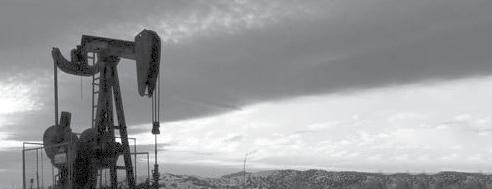

prices, good service, rancher owned.
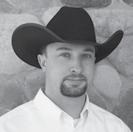
up to a truck load.
Property for Sale
THE BUCKHORN RANCH (40 miles east of Truth or Con sequences, N.M.) has been in the same family since 1929. This award winning 42,000 + acre ranch consists of 45 pas tures, intensively managed under the concept of holistic management/regenerative grazing since 1990. Rated at 504 cattle year-round. Priced at $3,500,000. View detailed write-up and photos at www. sidwellfarmandranch.com Sidwell Farm and Ranch Realty LLC, Tom Sidwell, broker, 575403-6903, tom@sidwellfarman dranch.com
Killebrew
JOHN DEERE 4430 TRAC
TOR: 6,500 hours, has new dual tires, new seat, new steps, new lights. Fantastic farm tractor!! Asking $26,500 OBO. 1998 FORD F-SERIES
DUMP TRUCK, 4x4, 8.3 Cum mins, 6 speed Allison auto matic transmission, 22.5 rub ber, 50 gallon diesel tank, air assist pintle hitch, 10’ dump bed with grain door, 6 yard bed, 40,173 original miles, stored inside most it’s life, GVW 30,000 lbs., tires 90%.
Great truck for farm use, snow removal etc. Call Mike 970371-4050, rmhojio@gmail. com. To view photos, go to www.wylr.net in the classi
POWDER RIVER PORTABLE
sections.
AUCTION, 160 ACRES HAVRE, MT: Online auction closing Oct. 17 For complete details, visit our website www. nationalauctionusa.com Auctioneers: Cash Seal and Jim Eli, 406-259-4730 10/8
320 ACRES WITH A MILE AND A HALF OF LIVE SPRING WATER: Alpine setting. Beautiful views. Lo cated in the Dillon, MT area. $1,700,000. Call Sidwell Land & Cattle Co., Richard Sidwell, 406-861-4426, 406322-4425 or e-mail sidwell@ sidwell-land.com 10/8
Irrigation
80 TONS THIRD CUTTING HAY, 70% alfalfa and 30% or chardgrass. Still standing. All to one buyer. Call to pick bale size, either 4x4x8 or small squares. 307-921-0582 or 307-851-3912, Riverton, WY 10/15
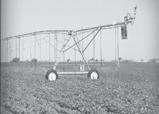
Students build connections during the Heart of Gold Livestock Show
The second annual Heart of Gold Livestock Show was held Sept. 27 at the Crook County Fair grounds in Sundance. Part nering in this event was Crook County 4-H, Bear lodge-Sundance FFA, Whitcomb FFA, Dev ils Tower FFA and Crook County schools.
Participants from pro grams in the Sundance Ele mentary, Sundance Second ary, Moorcroft kindergar ten through eighth grade and Moorcroft High School received hands-on experi ence in showing livestock and the care of a variety of animals.
The idea for the educa tional livestock show came from the National Associ ation of Extension Youth Development Profession als annual conference attended by 4-H Educator Sara Fleenor. The show was a great way to use animals to encourage connections with students not typically involved in 4-H and FFA.
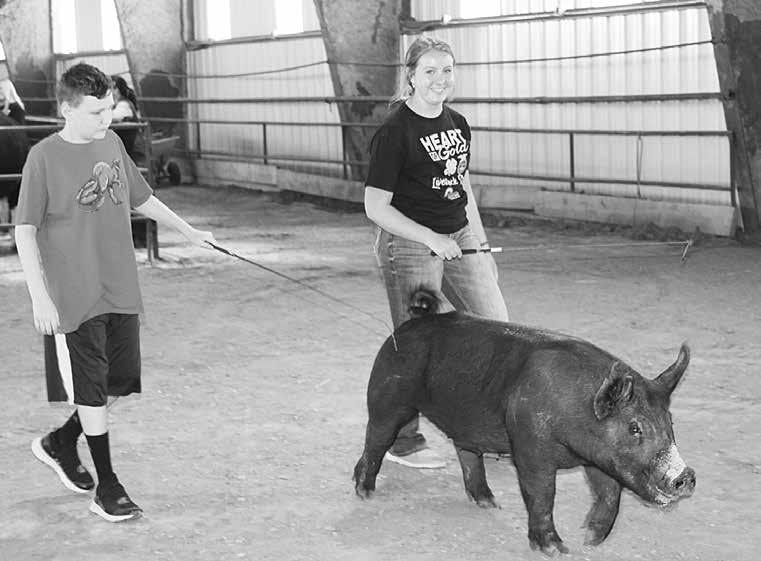
Partnering with the dis trict schools, students were able to work with older mentors from 4-H and FFA. The members of these youth organizations were able to teach district stu dents how to move safely around animals, how to brush them, get them show ready and finally, how to show the animal.
Horse, cattle, sheep, goat, chicken, rabbit, swine and dog projects were high lighted during the event. Students rotated through 11 stations of animals and then for a finale, had an animal parade through the barn. In addition, a team of horses
and a wagon were on hand to take students on a wagon ride around the fairgrounds.
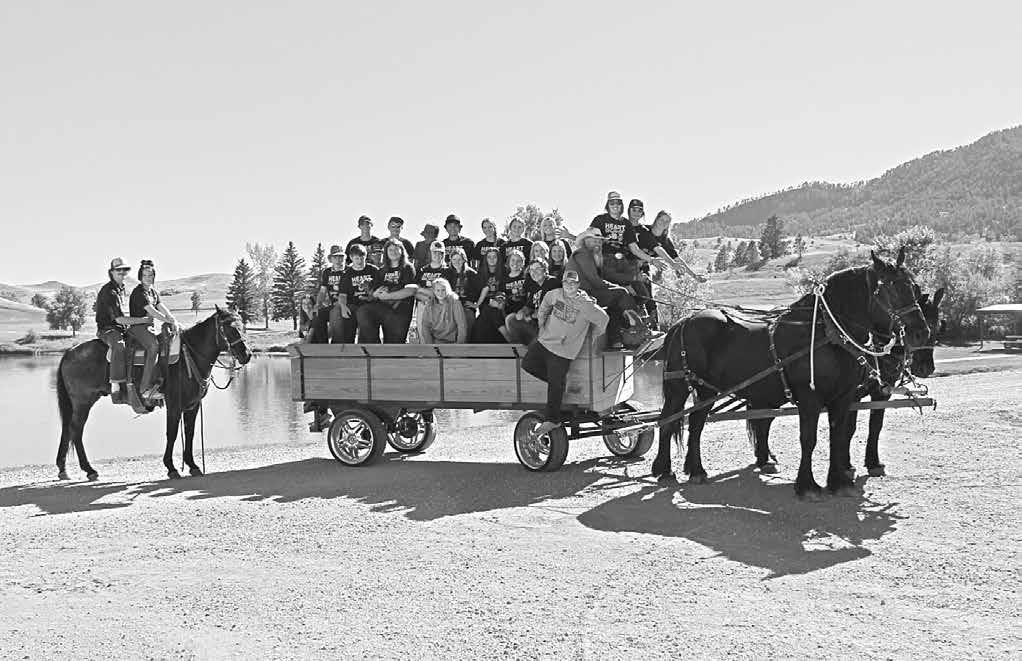
Participation
Over 100 students throughout the district par ticipated in the fall event. Several 4-H volunteers and Bearlodge-Sundance FFA alumni members also assisted with providing ani mals and set up.
The Sundance Second ary advanced foods class provided side dishes and desserts, as well as served the students lunch. Jake Krell prepared and served steak kabobs as part of his eighth grade aca demic readiness business plan. Sundance Second ary life skills students set the event hall and prepared centerpieces.
Crook County Cat tleWomen donated beef for lunch, Sundance State Bank provided partici pant shirts, Pinnacle Bank served lunch and Deckers Market of Sundance pro vided the meat and kabob ingredients.
Studies have shown many benefits come from youth spending time with livestock. An article pub lished by the University of Minnesota Extension high lights some of these bene fits. For example, training and working with livestock can help youth gain the life long skills of patience and compassion.
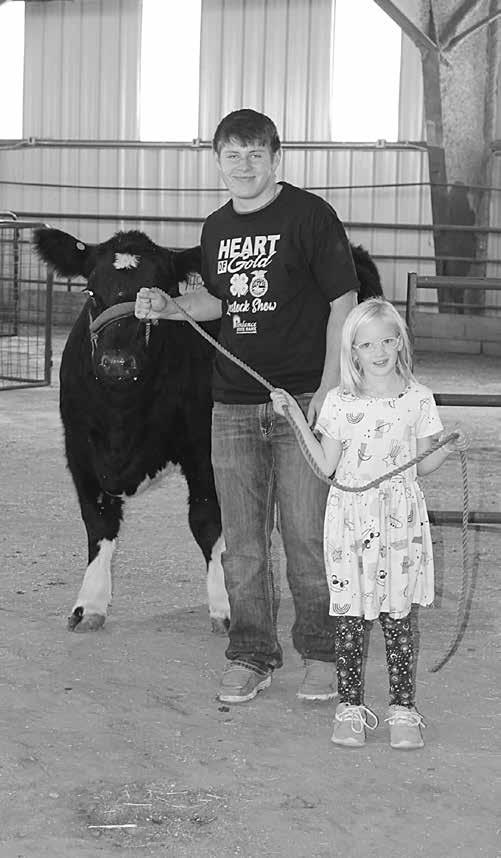
Youth learn how to nonverbally communicate with animals and demon strate respect for livestock by providing them with the best care possible. Students learn how to actively make decisions, which will not
only benefit themselves, but also the livestock at hand.
The Heart of Gold Livestock Show greatly impacted students by help ing them gain skills they will carry with them far beyond school. Other traits taught through showing livestock are responsibil ity, competition, financial knowledge, leadership and relationships.
Lessons learned Sundance Elemen tary Teacher Kim Eymer said, “This was such a fun opportunity learning about animals and con necting older students with younger students.”
Bearlodge-Sundance
FFA President Jameson Fleenor said, “The Heart of Gold Livestock Show was a great experience because we got to see how much enjoyment the ani mals brought the kids.”
Leadership is a core foundation for youth development programs, and the 4-H and FFA mem bers were able to put these life skills into action dur ing this event.
Cross-age peer mentor ing is a technique pairing high school students with elementary students, and is proven to work well for the students on both ends of the age spectrum. A 2019 article by Heather Myers for “Teaching Strategies,” indicated studies have found positive outcomes for both sets of students.
For the mentees, they gain a connection to the school and peers, improved behavior and attitude and improved feelings of com petency and accomplish ment, as well as a positive outcome on grades and academic achievement. For the mentors, benefits of this technique include improvement in selfesteem, empathy, intraper sonal communication and conflict resolution.
Devils Tower FFA Pres ident Jessee Driskill said, “I really enjoyed being able to make a difference in the stu dents’ day. To see all of the smiles on their faces really showed me how easy it is to make a difference in some one else’s life.”
This event is planned to continue next fall. If interested in participat ing or learning more about Crook County 4-H, call 307-283-1192 or visit the Crook County University of Wyoming Extension
U.S. Department of Agriculture reports hog inventory
Office at 309 E Cleveland St., Sundance, WY 82729. Sara Fleenor is the University of Wyoming 4-H Educator for Crook County. Send comments on this article to roundup@ wylr.net.
U.S. inventory of all hogs and pigs on Sept. 1 was 73.8 million head. This was down one percent from Sept. 1, 2021, but up two percent from June 1. Breeding inventory, at 6.15 million head, was down one percent from last year, and down slightly from the previous quarter. Market hog inventory, at 67.6 mil lion head, was down one
percent from last year, but up two percent from last quarter.
The June-August 2022 pig crop, at 33.6 million head, was down one per cent from 2021. Sows far rowing during this period totaled 3.02 million head, down one percent from 2021. The sows farrowed during this quarter repre sented 49 percent of the
breeding herd. The aver age pigs saved per litter was 11.13 for the JuneAugust period, unchanged from last year.
U.S. hog producers intend to have 2.97 mil lion sows farrow during the September-November 2022 quarter, down two percent from the actual farrowing number during the same period one year
earlier, and down six per cent from the same period two years earlier. Intended farrowing for Decem ber 2022-February 2023, at 2.9 million sows, are down one percent from the same period one year earlier, and down one per cent from the same period two years earlier.
The total number of hogs under contract owned
by operations with over 5,000 head, but raised by contractors, accounted for 50 percent of the total U.S. hog inventory, up one percent from the previous year.
All inventory and pig crop estimates for Sep tember 2021 through June 2022 were reviewed using final pig crop, official slaughter, death loss and
updated import and export data. The revision made to the March 2022-May 2022 pig crop was 0.1 percent. A net revision of 0.7 percent was made to the March 2022 all hogs and pigs inventory. The net revi sion made to the Decem ber 2021-February 2022 pig crop was 0.6 percent.
For a full copy of the report, visit nass.usda.gov
Inflation is running ram pant and nowhere is this more evident than at res taurants, so diners have to get creative to stretch their food dollars. Up until now, I’ve relied on three ways to reduce the total tab and not break the bank: Eat fast food more often, order off the a la carte menu or split a meal with your spouse.
Believe me, I’ve exper imented with all three with varying results, but have found the best way to cheapen a bill is ordering the combo meal consisting of one item off the a la carte menu at a fast food joint and then split it with your spouse.
My wife and I never eat supper or breakfast out, but I do like to treat her to lunch a couple times a week. Cur rently, one of our favorite restaurants is a place called Sea Pines. We’ve eaten at Sea Pines for over 40 years, and it’s gone through its ups
Crop


and downs depending on the management, but currently its fare is fabulous and the staff is super friendly.
We also like it because we’re only a couple miles away, and this brings up yet another way to reduce the tariff while dining out: Pick a place close to home to cut back on gas – the fossil fuel kind anyway.
If you think being a customer at a restaurant is costly, put yourself in the restaurateur’s shoes. Their costs are spiraling out of control, customers are still a bit reluctant to dine out due to COVID-19, many places can’t find the help they need and some chains have gone belly up because they simply cannot find the workers they need in suffi cient numbers.
The restaurant business really has gone to the dogs. One idea Sea Pines has come up with to generate more income is to feature a

Precipitation levels once again varied across Wyo ming for the week ending Oct. 2, according to the Mountain Regional Field Office of the National Agri cultural Statistics Service. Western portions of the state received higher amounts of moisture.
Much of western Wyoming received precipitation levels in a range from about 0.4 inches to upwards of two inches. The highest amounts fell in northwestern Fremont County.
Eastern Wyoming received moisture levels in a range from trace to 0.4 inches at the most. Precipitation levels were lowest in northeastern Wyoming.
Temperatures once again ran above normal for much of the state. Isolated portions of the northeast experienced temperatures as much as 10 degrees above average.
Drought conditions improved slightly. According to the U.S. Drought Monitor for Sept. 29, the amount of land rated drought free increased to 15.7 percent, com pared to 13.3 percent the previous week. The amount of land rated abnormally dry fell to 31.8 percent, com pared to 32.3 percent the previous week. Moderate drought sat at 32.5 percent, an increase of 0.5 percent age points.
Severe drought fell to 16.3 percent, compared to 17.5 percent the previous week. Extreme drought con ditions remained unchanged at 3.7 percent.
Irrigation water supplies across the state were rated 23 percent very poor, 18 percent poor, 21 percent fair and 38 percent good, compared to 27 percent very poor, 17 percent poor, 20 percent fair and 36 percent good the previous week.
Stock water supplies across Wyoming were rated 15 percent very short, 46 percent short and 39 percent adequate, compared to 15 percent very short, 37 per cent short and 48 percent adequate the previous week.
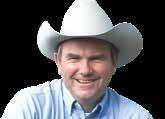
dog’s menu. For example, the breakfast menu offers The Canine Combo includ ing one scrambled egg, one piece of bacon and one dog gie biscuit, all for only seven bucks. Or, you can buy three scrambled eggs cooked to your dog’s liking for six dol lars, and last but not least, four pieces of extra crispy bacon for five dollars.
The lunch and dinner items for the pooches at Sea Pines include sliced chicken breast for five dollars, onethird of a pound of ground beef patty for six dollars or an eight-ounce ribeye cooked to your pup’s pre ferred degree of doneness for only $10. What dog is
going to eat chicken when they can eat beef?
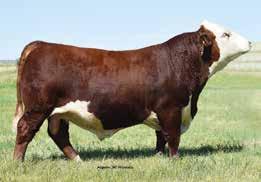
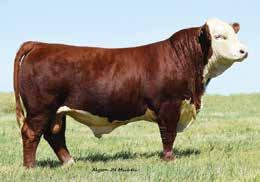
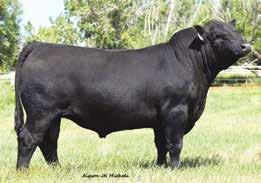
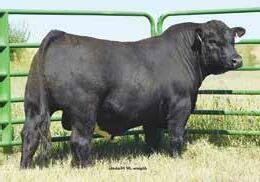
I asked our favorite server Brie, “Does anybody really order these things for their dog?”
I watched as a tear began forming in the corner of her eye and with halting speech she uttered, “Oh, yes. On the day we had to put our old dog down, we brought her here first and ordered the ribeye steak for her.”
“I bet she went to heaven with a big old smile on her doggie face,” I said, trying to lighten the mood.
On our next visit to Sea Pines, Brie wasn’t there, and I ordered the doggie ribeye.
“And could I get a knife
and fork with that, you know, to cut up the steak into more dog-sized chunks?” I asked.
“That’s thoughtful of you,” our server said. “And would your dog like some thing to drink?”
“That depends. How much are you getting for your dog iced tea or a dog gie Diet Coke?” I asked.
“They’re $3.50, the same as the people version,” the server replied.
“Oh, I think our dog will pass then,” I said. “Could you just bring us all some water?”
I ruminated about what a great concept the dog menu was at Sea Pines. Basically, they turned one restaurant
into two. One for people, and an all-new coffee shop for dogs. If they can be so creative in coming up with ways to fight inflation, I fig ured so can I.
So, the last time we dined out at Sea Pines, I ordered the ribeye steak along with The Canine Combo, with two extra plates. So, we ended up with the ribeye, a scrambled egg and a piece of bacon all for $17, or $8.50 for two.
As we were leaving, the server yelled out to us across the crowded restaurant, “Don’t forget your doggie biscuit for your imaginary dog.”
Smarty-pants.
